During my search for traditional plant-based dishes from around the world two themes reappear time and again. Religion and poverty. Both of these have long shaped food cultures towards naturally vegan options. Potaje de Garbanzos is a great example. The comforting stew has its roots in Spain’s rural cuisine, where cheap and easily available ingredients were turned into a nourishing meal. The lack of expensive animal proteins meant that the dish was also suitable for religious fasting periods, which made it a popular staple during Lent. Over time, it reached the kitchens of all economic classes, where it began to transform into countless variations and became a symbol of home-cooked comfort food. It’s the kind of dish many remember fondly as the one their grandmother would prepare on a weekend.
There is another reason why Potaje de Garbanzos has become such a sought-after staple. With its origins in Spain’s peasant cuisine, cooks relied on clever methods to create rich flavours and textures. There are particularly two tricks that make this stew special. While cooking the chickpeas from scratch, vegetables and aromatics like onions, red peppers and bay leaves are added to the water. By the time the chickpeas are tender, the leftover liquid will have turned into a rich vegetable stock. Plus, the cooked veg is used later on as well. Zero waste!
The second trick is a natural way to thicken the stew. First, garlic cloves are sautéd in olive oil to impart their flavour. Afterwards, a slice of bread is toasted in the same oil, soaking up all of that garlicky olive oil goodness. The bread, garlic and cooked veg from the stock are then blended into a sauce that will naturally thicken the stew. Genius!
What is Potaje de Garbanzos?
Potaje de Garbanzos is a traditional Spanish chickpea stew, naturally vegan and rich in wholesome, plant-based ingredients. This hearty dish features tender chickpeas slow-cooked with a medley of vegetables, fragrant herbs, and warm spices like smoked paprika and cumin, creating a deeply flavorful, nourishing meal. Potaje de Garbanzos is the perfect example of Mediterranean comfort food—simple yet packed with robust flavors and nutrients.
Ingredients You’ll Need for Potaje de Garbanzos & How to Substitute
- Dried chickpeas (or jarred/canned chickpeas): If using dried, soak them overnight, or opt for jarred or canned chickpeas for convenience—just drain and rinse canned chickpeas before adding them to the stew.
- Large onions: Provides a flavorful base for the stew. White or yellow onions work well here.
- Red pepper: Adds sweetness and a pop of color. You can also use green or yellow bell peppers if preferred.
- Bay leaf: Adds a subtle, aromatic depth. Dried thyme or rosemary can be used as an alternative.
- Extra virgin olive oil: A Mediterranean staple that adds richness.
- Garlic cloves: For that savory depth. Adjust the amount based on your preference for garlic.
- Slice of bread (sourdough recommended): Used to thicken the stew and add texture. Sourdough adds a slight tang, but any crusty bread will work.
- Potatoes: Adds heartiness and texture. Starchy potatoes like Maris Piper are a good option, as they also naturally thicken the stew.
- Large tomatoes: Fresh tomatoes provide acidity and sweetness. Canned tomatoes can be substituted if fresh ones aren’t available.
- Large leaf spinach: Adds freshness to the dish. Kale or Swiss chard can be used if spinach isn’t available.
- Sweet smoked paprika: Essential for that rich, smoky flavor. Regular sweet paprika and smoked salt can be a substitute if needed.
- Freshly ground black pepper: Adds a hint of spice and balance to the stew.
How to Make Potaje de Garbanzos (Step-by-Step)
Soak the chickpeas. Place the chickpeas in at least 1.5 liters of water and let them soak overnight.
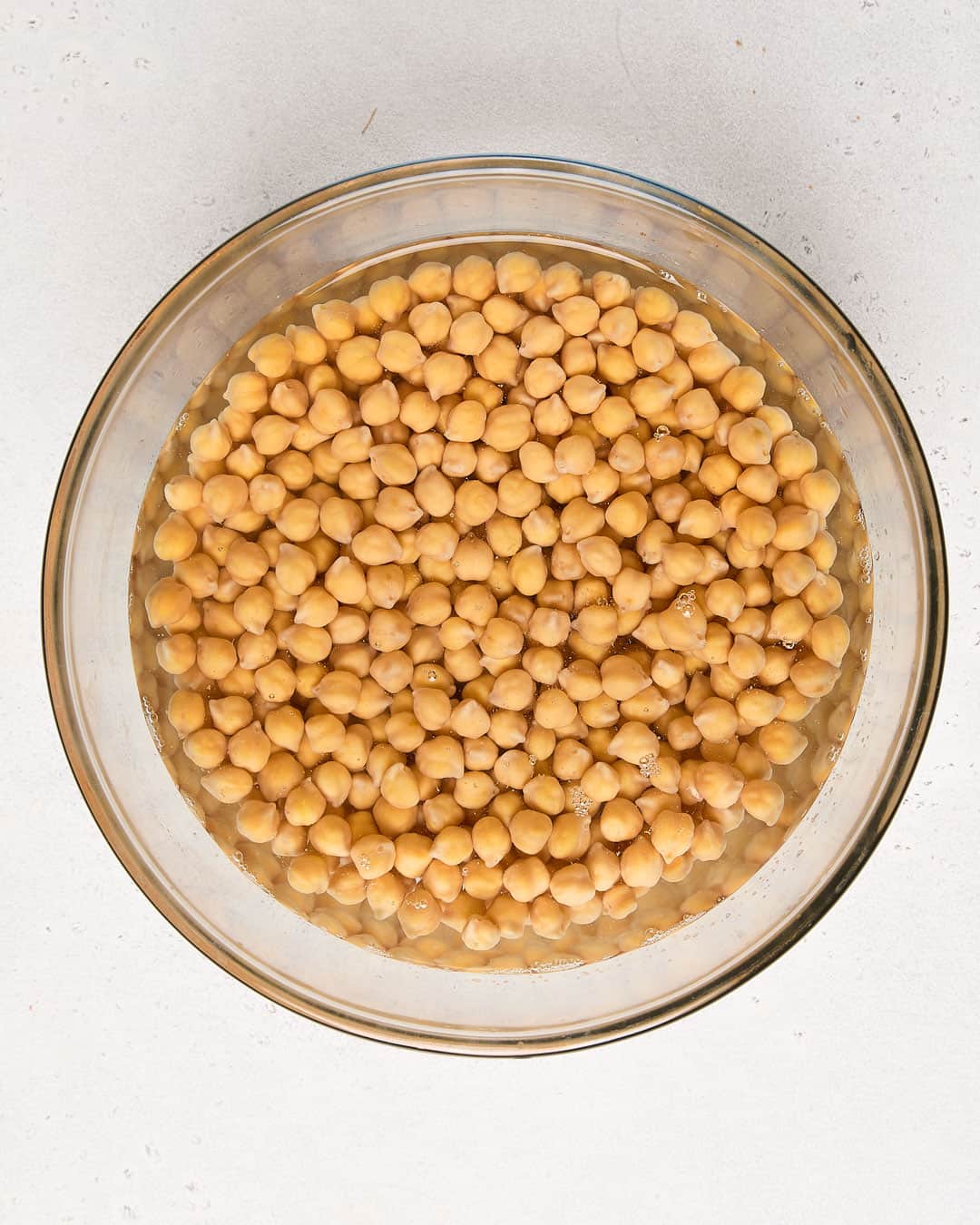
Cook the chickpeas. The next day, peel and halve one of the onions, peel four of the garlic cloves and deseed the red pepper. Drain the soaked chickpeas and transfer them to a large saucepan with 2 liters of fresh water, the halved onion, four garlic cloves, red pepper and bay leaf. Bring the mixture to a boil, then reduce the heat and let it simmer with the lid ajar for about 1 1/2 hours, or until the chickpeas are just tender. Turn off the heat and allow the chickpeas to cool in the liquid. Alternatively, you can cook the chickpeas in a pressure cooker with 1 liter of water for around 15 minutes, which saves time.
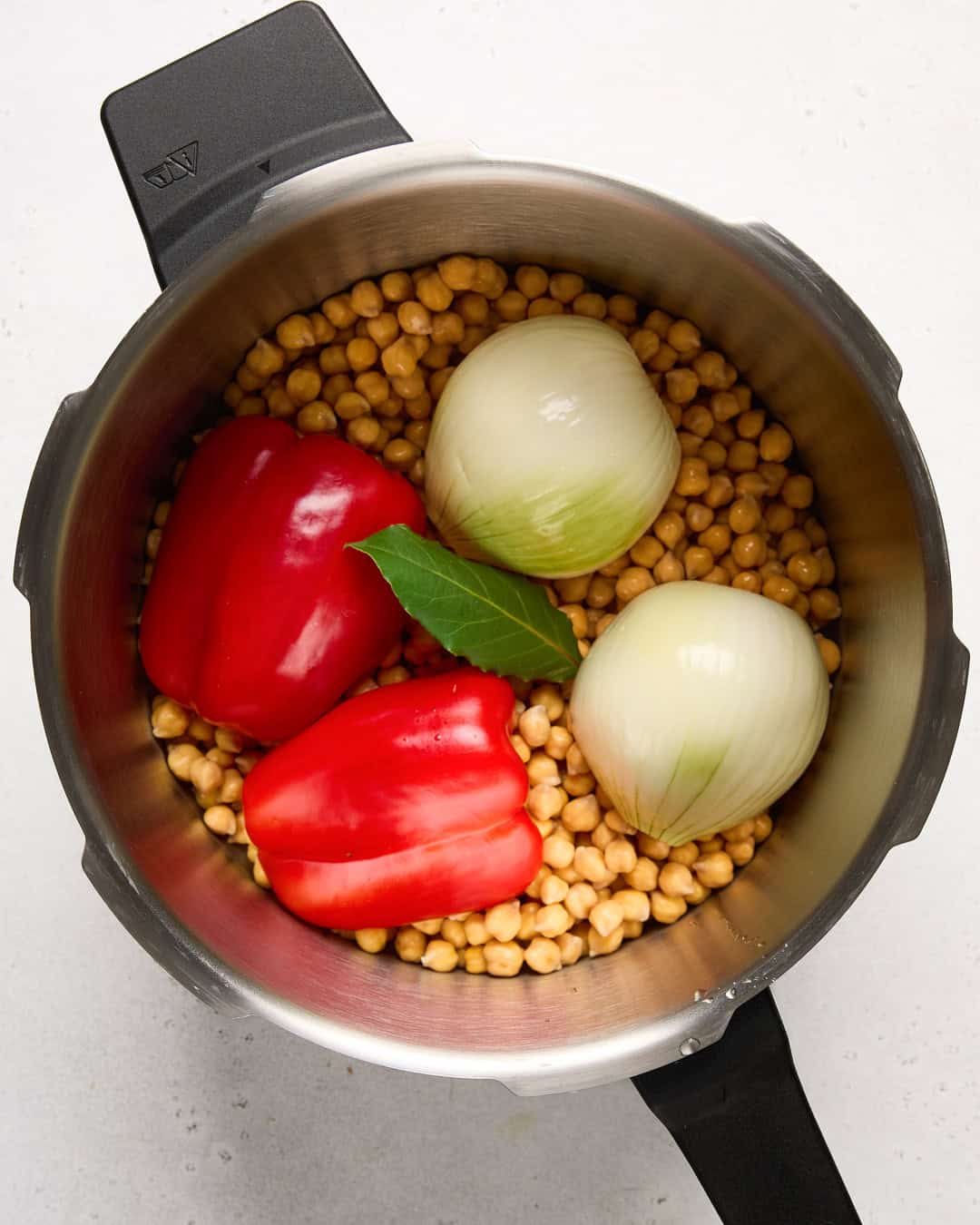
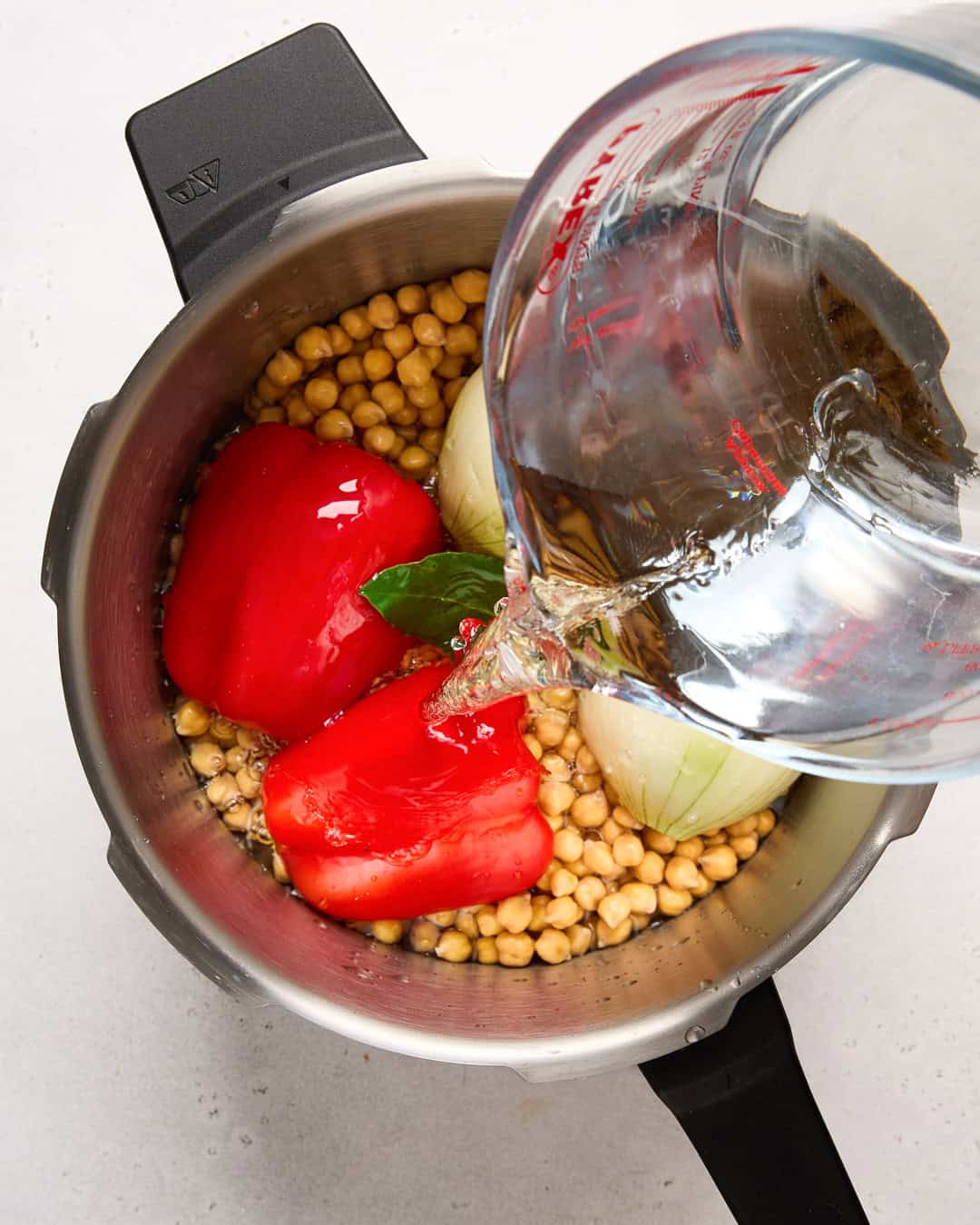
Prepare the base. When the chickpeas have about 10 minutes left to cook, heat 3 tablespoons of olive oil over medium heat in a large casserole or pot. Peel the remaining garlic and sauté the cloves whole until they turn golden, about 3-4 minutes. Transfer the garlic to a blender.
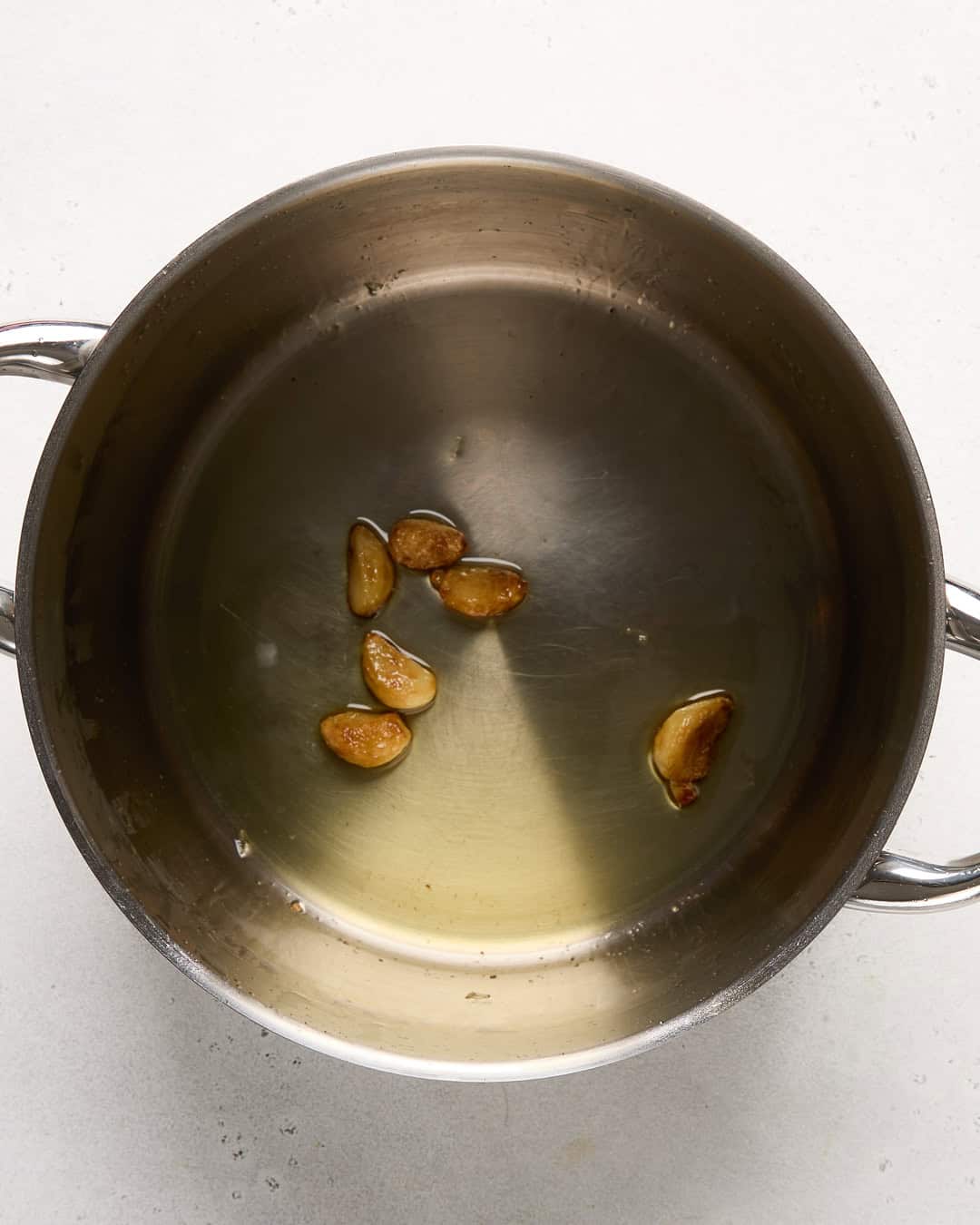
Toast the bread. In the same oil, toast the bread on both sides until golden, around 3-4 minutes. Cut the toasted bread into chunks and add it to the blender with the garlic.
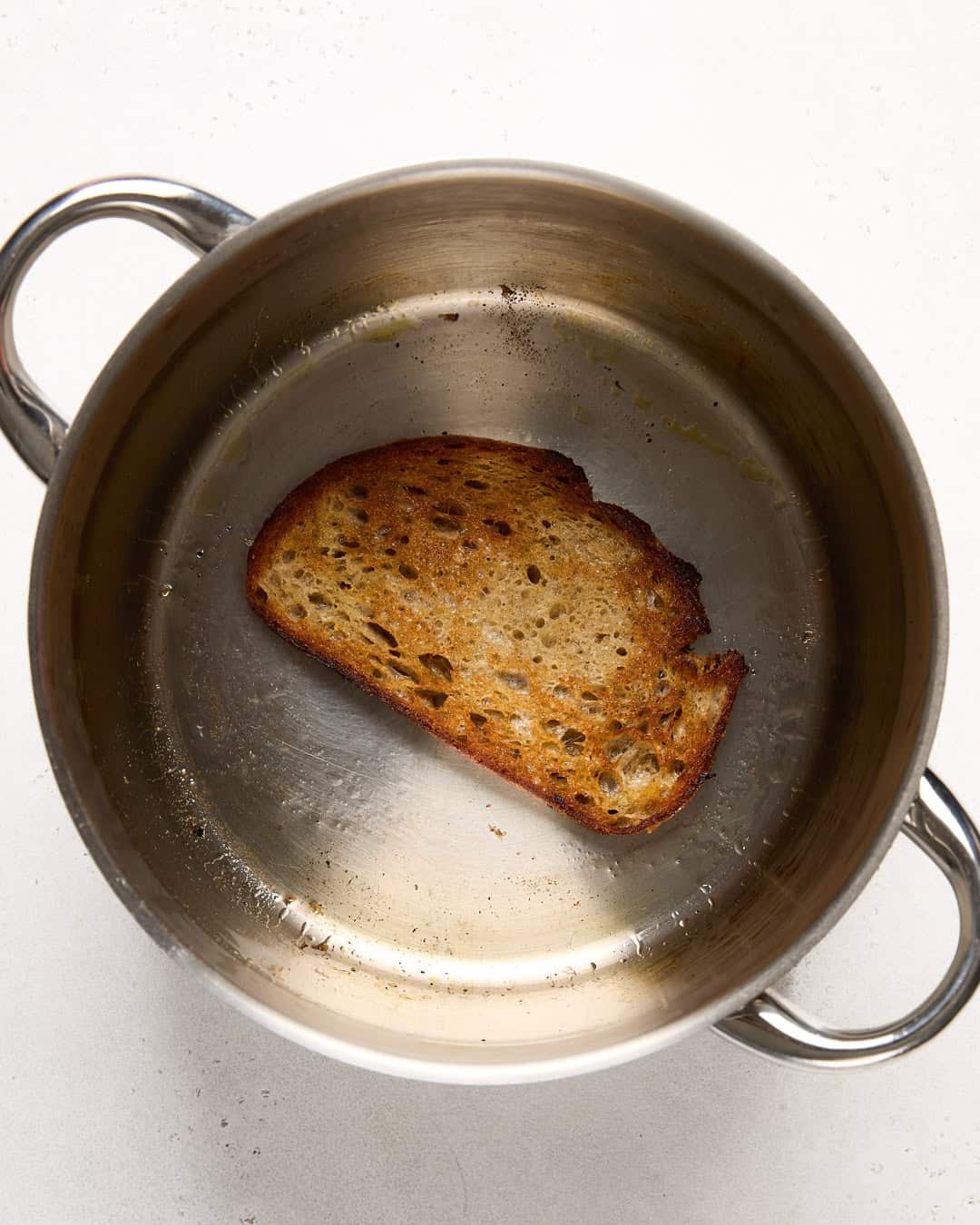
Blend the vegetables. Remove the bay leaf from the chickpeas and transfer the cooked onion, garlic and red pepper from the pot to the blender. Add 300ml of water to the blender and blend everything into a thick, smooth paste.
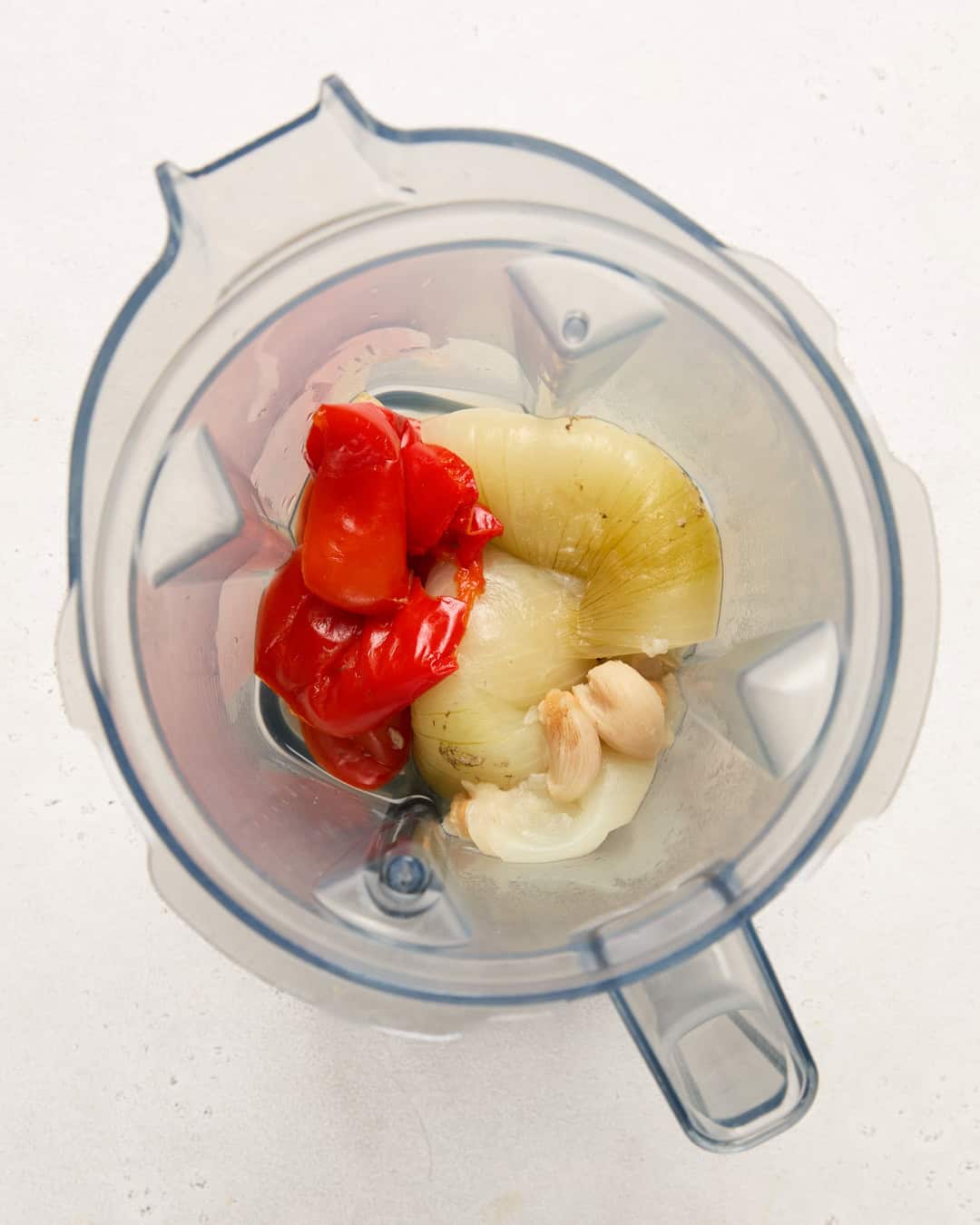
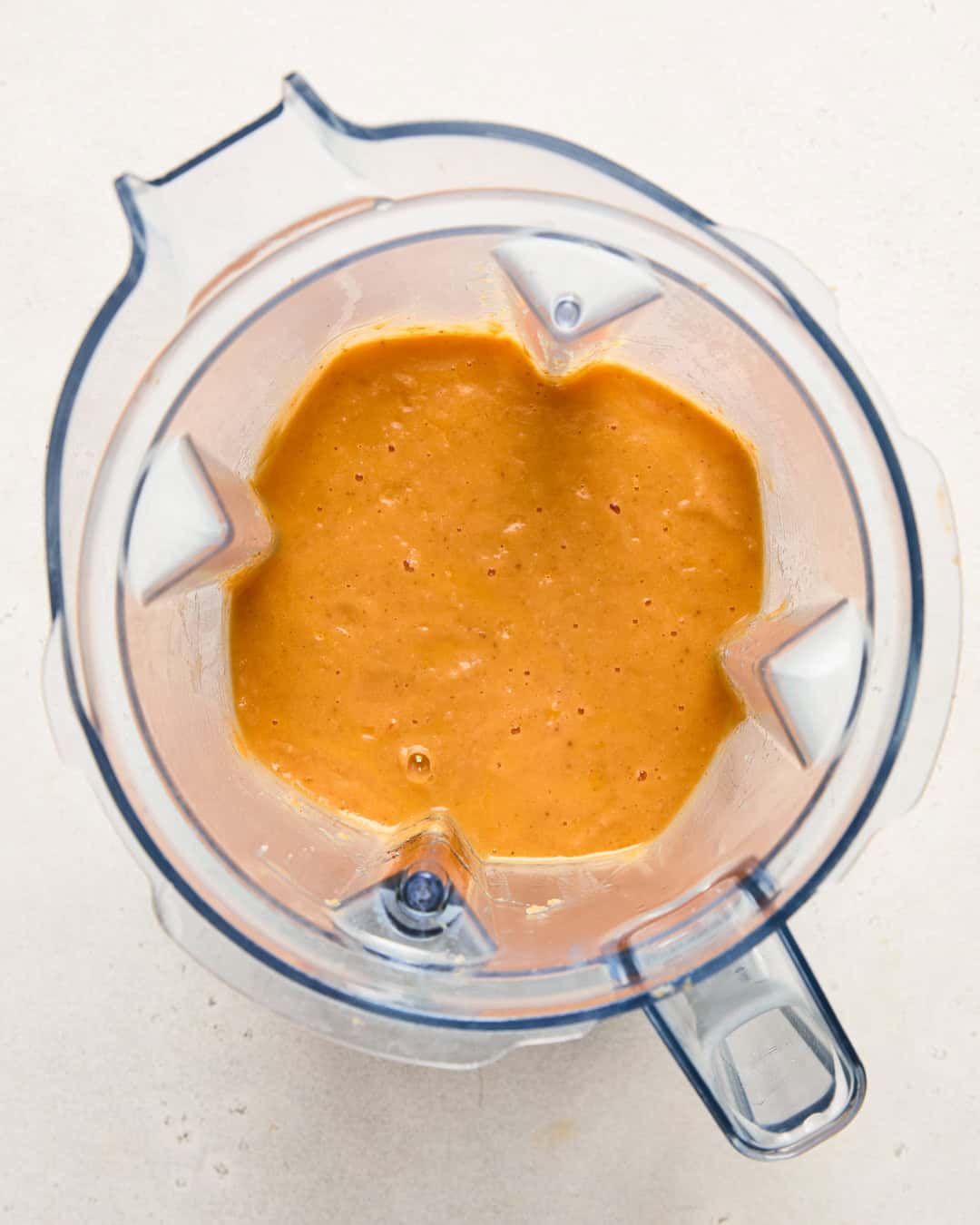
Drain the chickpeas. Drain the chickpeas, making sure to save the cooking water for later use.
Sauté the remaining onion. Heat the remaining 3 tablespoons of olive oil in the same casserole over medium heat. Peel and roughly chop the second onion, and sauté it in the oil until it begins to turn golden, about 8-10 minutes.
Prepare the vegetables. While the onion is cooking, cut the potatoes into bite-sized chunks and roughly chop the spinach. Grate the tomatoes, discard the skins, and set everything aside in separate bowls.
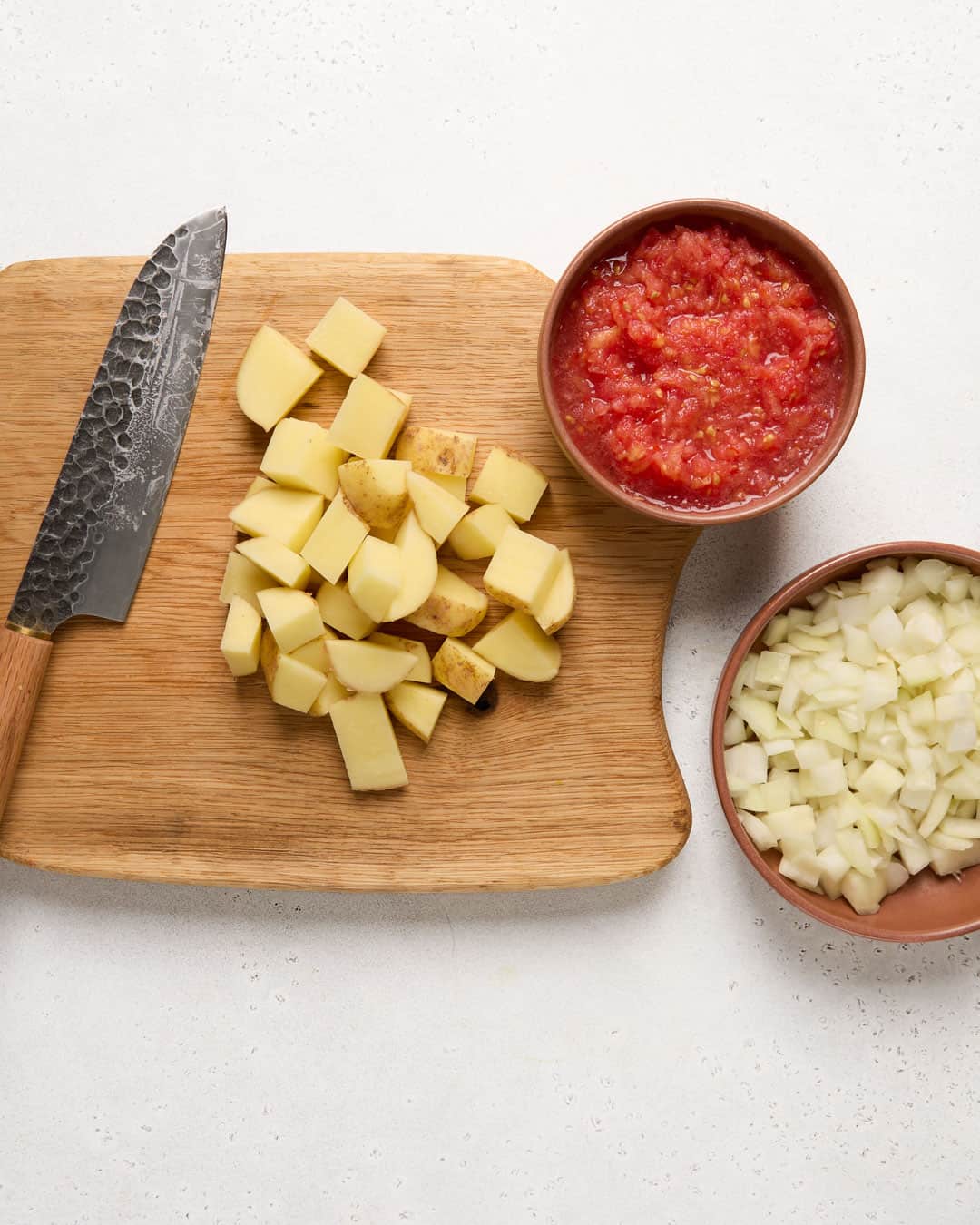
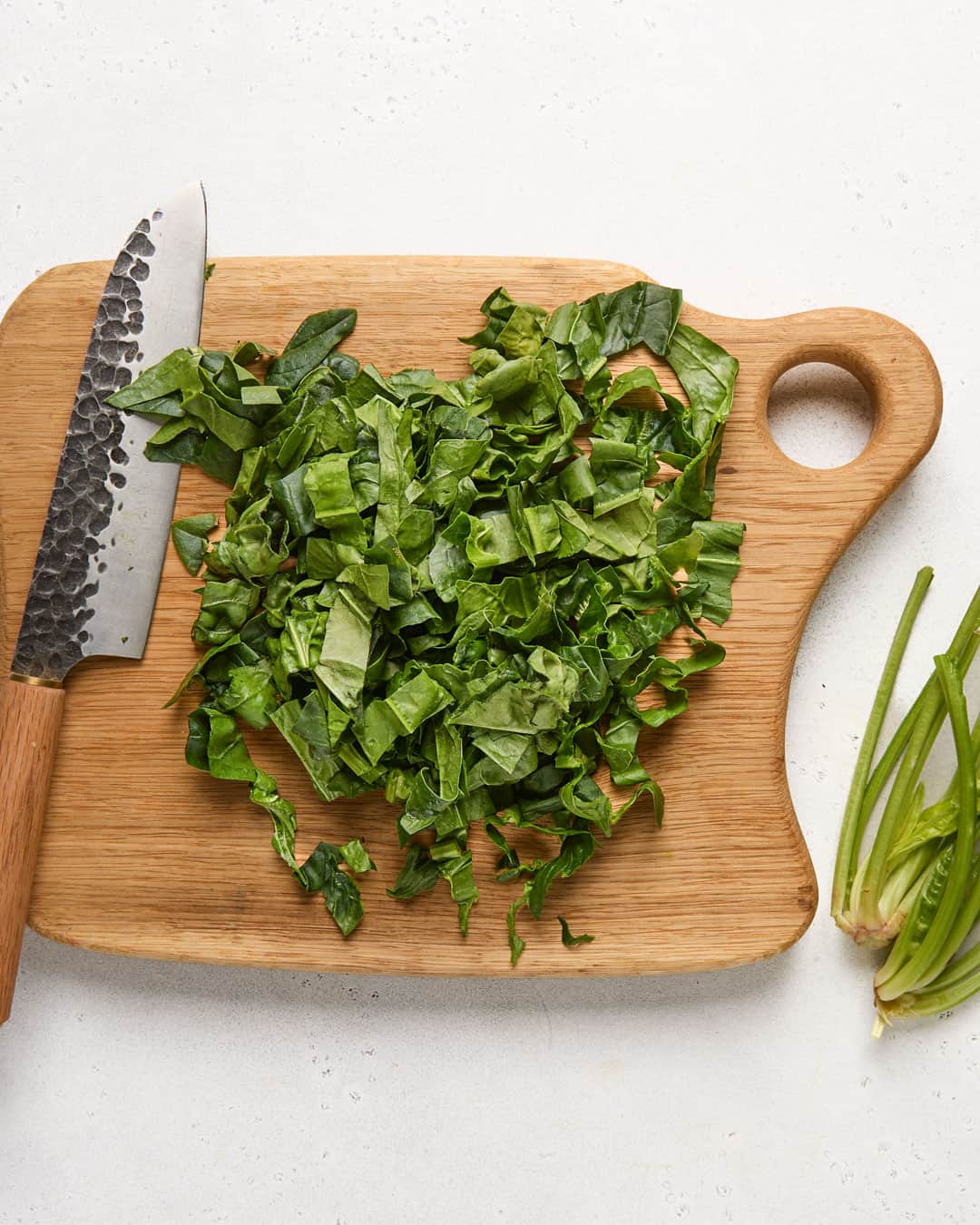
Cook the tomatoes and spices. Add the grated tomatoes to the casserole with the sautéed onion and cook until most of the tomato juices have evaporated. Stir in the sweet smoked paprika and black pepper, cooking until aromatic.
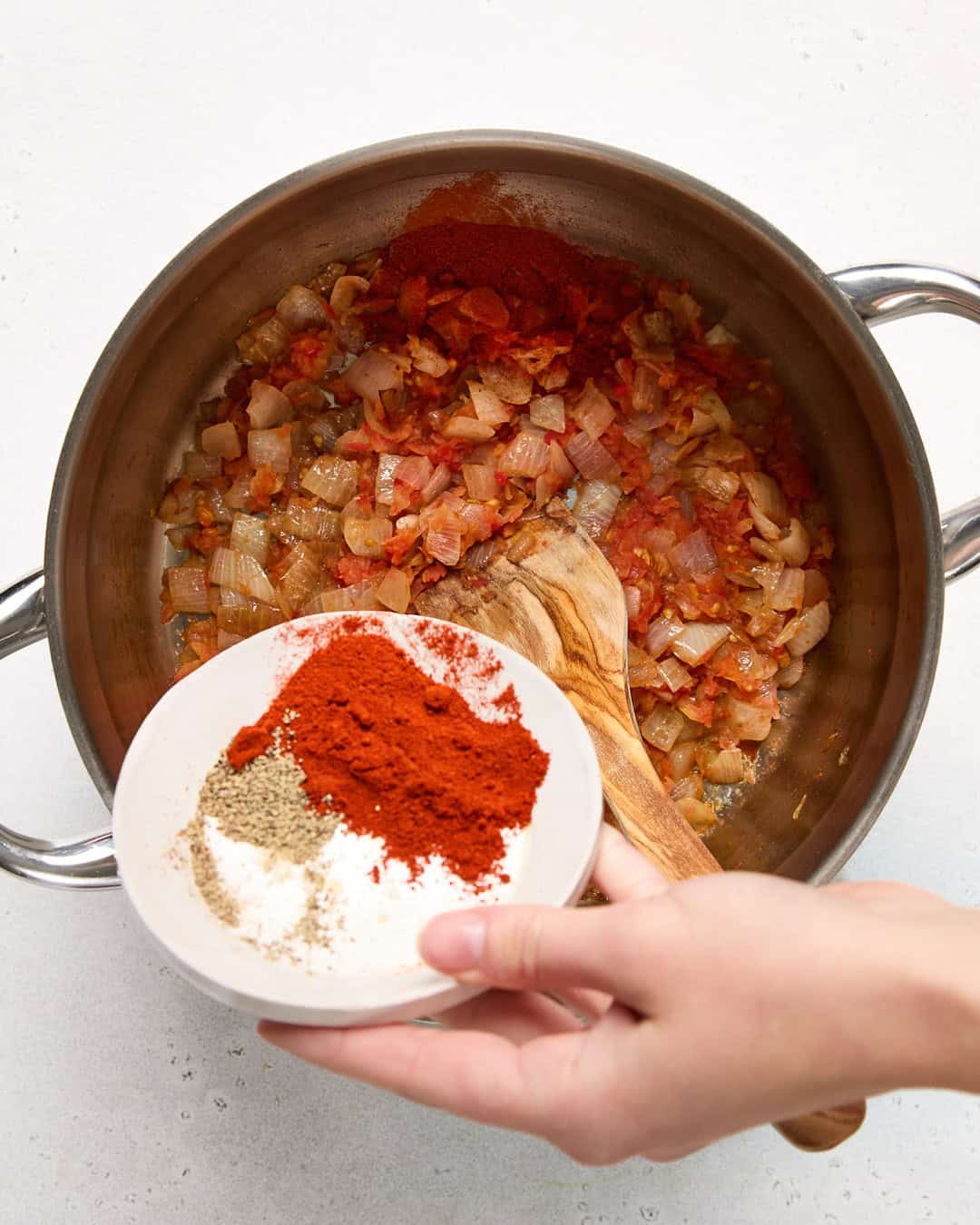
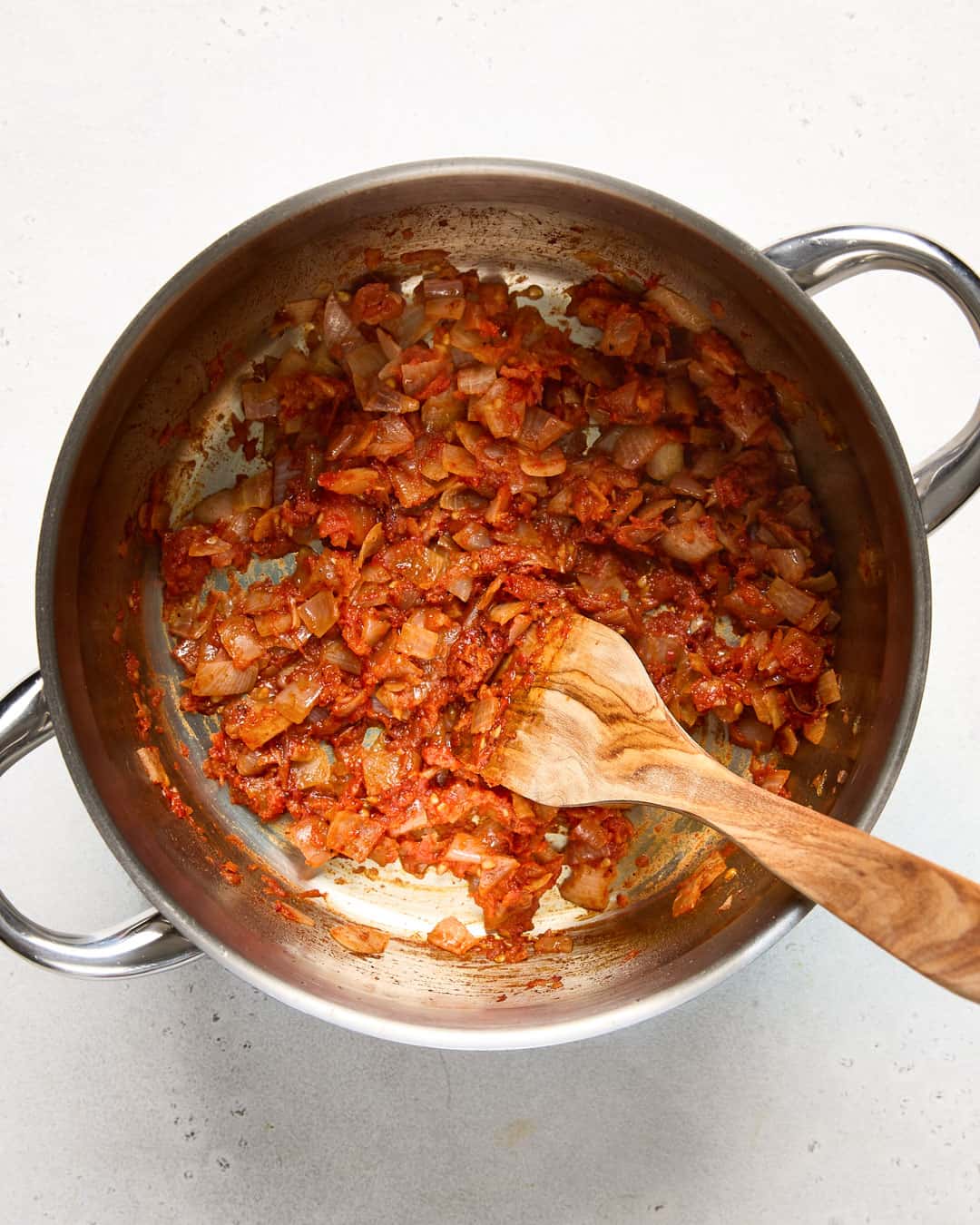
Combine everything. Add the drained chickpeas, 400ml of the reserved chickpea cooking liquid, the blended vegetable paste, potatoes, and salt to the casserole. Stir everything together, bring to a boil, then reduce the heat to a simmer. Cover and cook for about 15 minutes, stirring halfway through to prevent sticking.
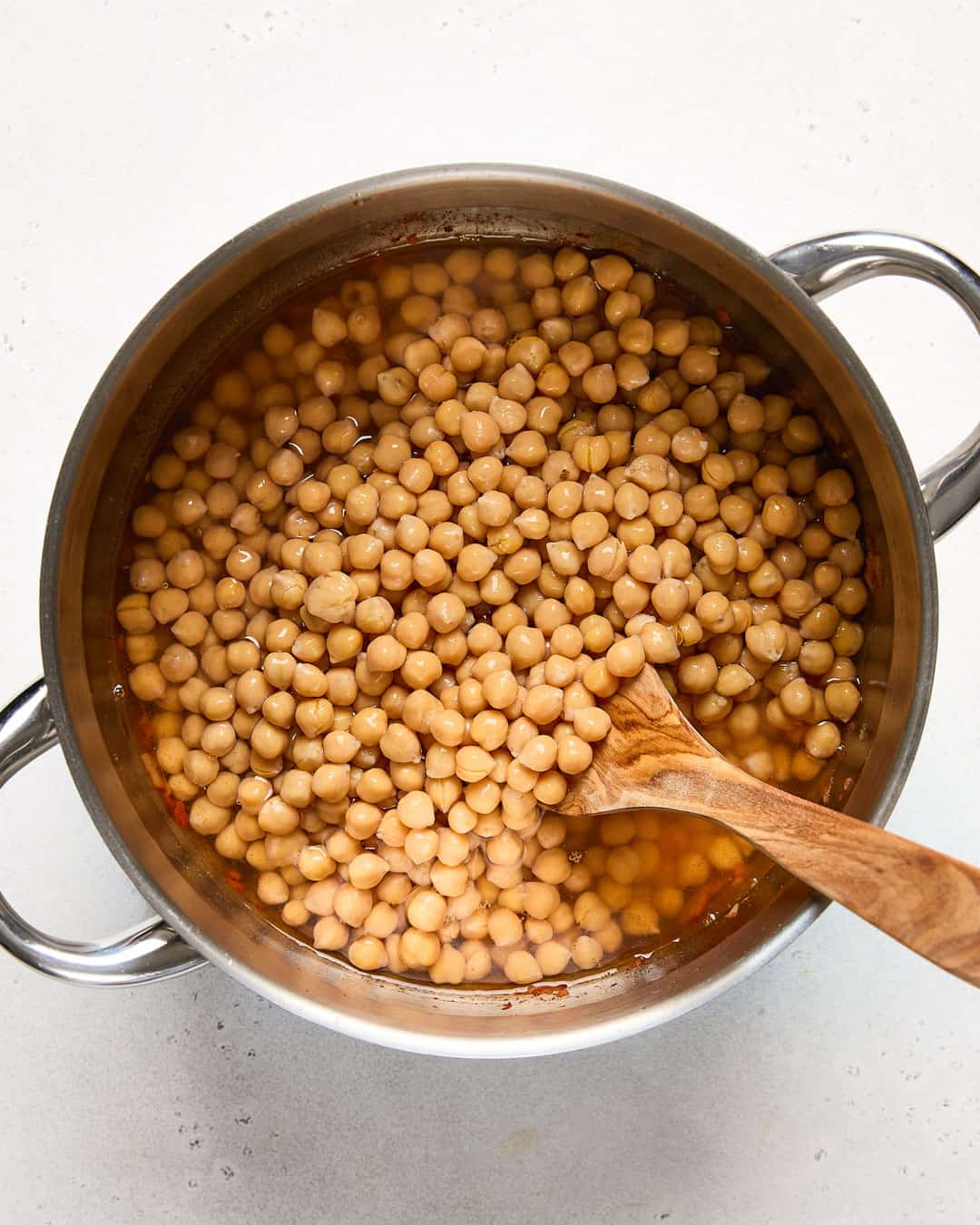
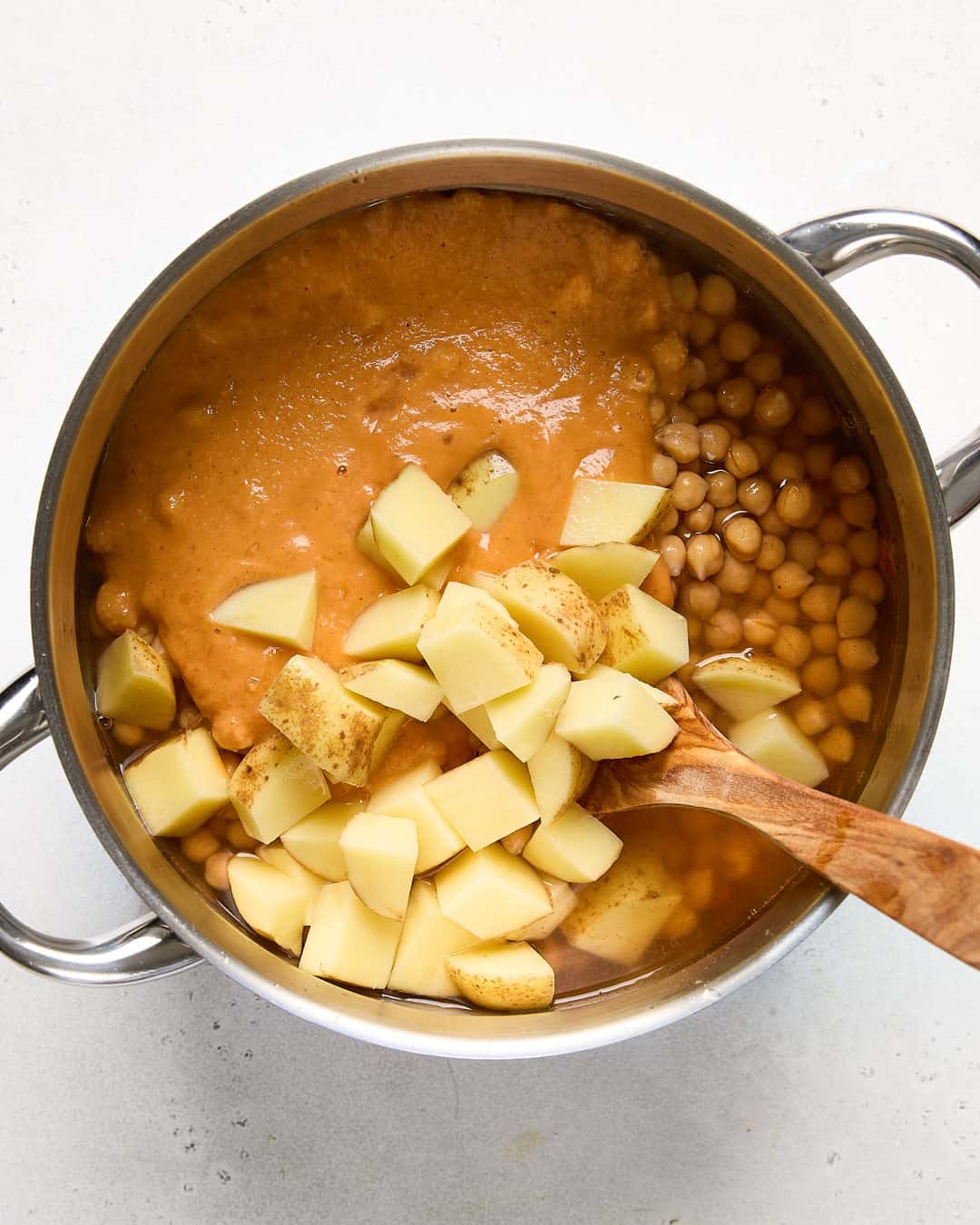
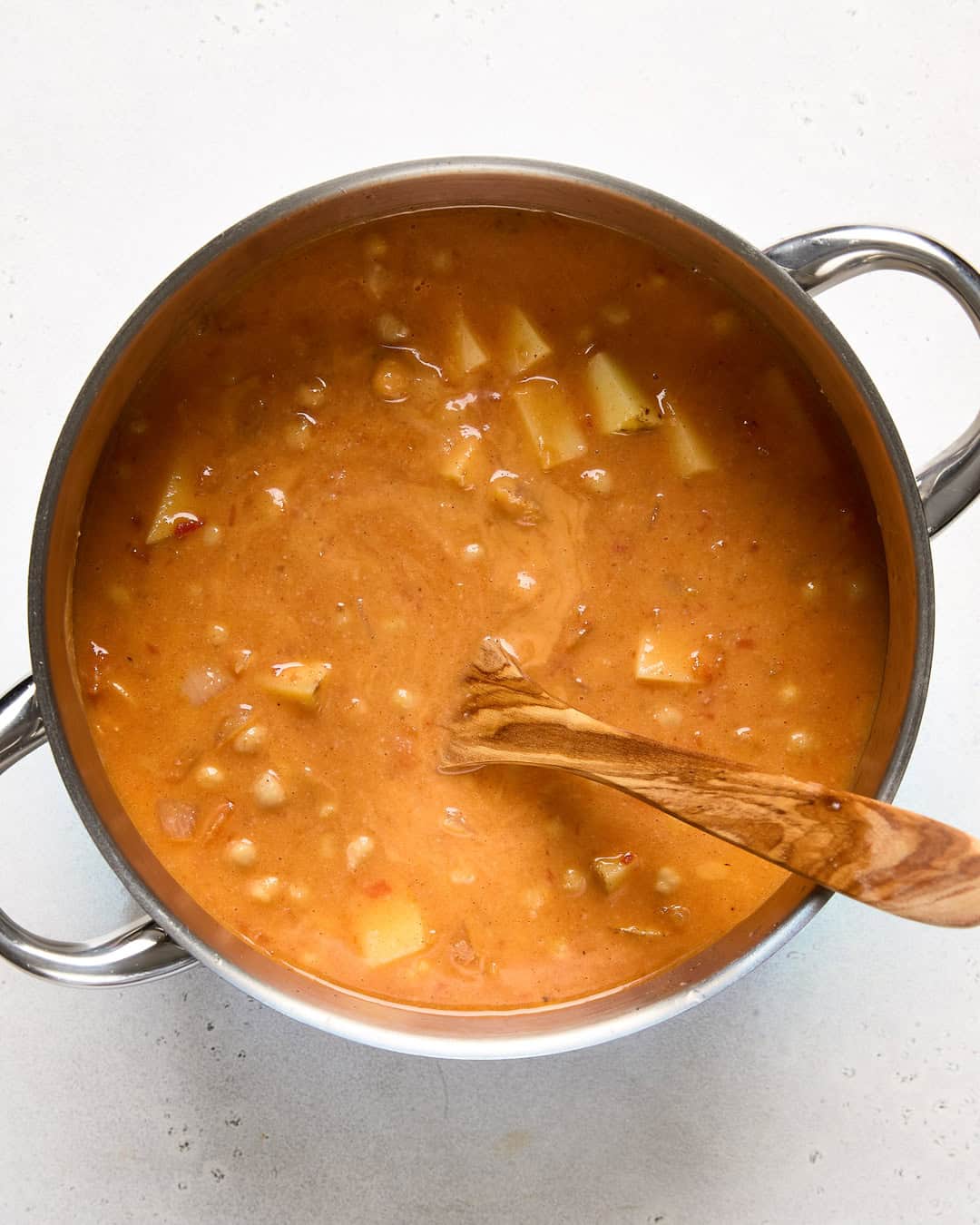
Add the spinach. Fold in the chopped spinach and continue to cook for another 5 minutes, or until the potatoes are tender.
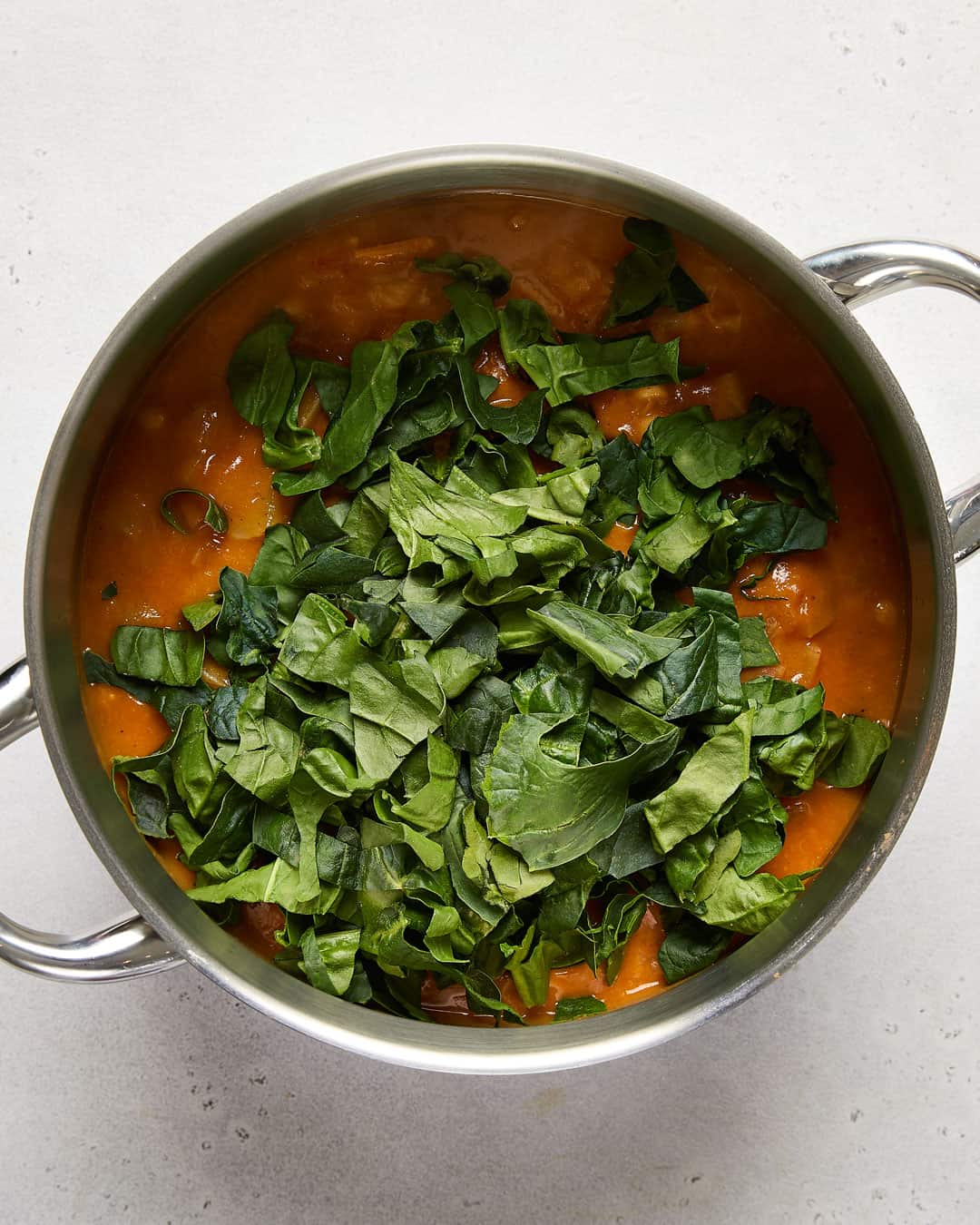
Serve. Divide the potaje into bowls and finish with a drizzle of extra-virgin olive oil before serving.
Useful Tips
- Balance flavors: Adding a splash of vinegar or a squeeze of lemon just before serving brightens up the flavors and balances the richness.
- Seasonal ingredients: Feel free to adapt this recipe to what’s available seasonally. Change spinach for chard or kale, use passata or canned tomatoes instead of fresh.
Why You’ll Love This Potaje de Garbanzos Recipe
- Traditionally vegan: A traditional Spanish recipe with no animal products.
- High in plant-based protein and fiber: Chickpeas provide essential nutrients that make this dish both filling and energizing.
- Budget-friendly ingredients: Simple, inexpensive ingredients that are likely already in your pantry.
- Easy to make: A straightforward recipe that doesn’t require advanced cooking skills, ideal for anyone seeking a nutritious and comforting meal.
- Great for leftovers: The flavors intensify after a day, making it a perfect dish to prepare ahead of time.
How to Store Potaje de Garbanzos
- Refrigerate: Store leftovers in an airtight container in the refrigerator for up to 4-5 days.
- Freeze: Potaje de Garbanzos freezes well for up to 3 months. Make sure the stew has cooled completely before transferring it to a freezer-safe container.
- Reheat: When ready to serve, reheat the stew on the stove over medium heat, adding a splash of water or vegetable broth to adjust the consistency if needed.
Complete Protein
The combination of chickpeas and bread turns this dish into a complete protein. But what does that mean?
A complete protein contains all nine essential amino acids that the human body cannot produce on its own and must obtain from the diet. Animal-based foods like meat, fish, eggs and dairy are typically complete proteins. However, many plant-based foods lack one or more essential amino acids, making them incomplete proteins.
Some plant foods, such as quinoa, soybeans (tofu, tempeh, edamame), chia seeds, hemp seeds and buckwheat, are complete proteins on their own. Others, like beans, lentils, nuts and seeds are incomplete but can be combined with other sources to form complete proteins. For example, combining legumes with grains, grains with nuts or nuts with legumes can create a complete protein meal.
Our body can store these amino acids and combine them with those received from sources we consume at other times during the day. So eating a complete protein is not essential for every dish. However, combining different sources of proteins in a single meal makes it easier to cover the daily intake.
Pressure Cooker
Using a pressure cooker is a great way to cook legumes from scratch in a matter of minutes. They will be much more tender compared to being cooked in an ordinary pan and take a fraction of the time and energy, sometimes speeding up the process by 90%. Since pressure cookers vary slightly from manufacturer to manufacturer, please refer to the manual for how to use the one you own. Personally, I recommend the Fissler Vitavit Premium 3.5l (or larger).
It takes about 10 minutes to come to a boil and reach the full pressure and a further 15 minutes until the chickpeas are perfectly cooked. So after just 25 minutes your chickpeas are ready and you can release the pressure. If you do use a pressure cooker for this recipe, you can deduct 1 hour and 15 minutes of the total cooking time.
Tips: To save even more energy, you can also cook the chickpeas for only 8 minutes and let the cooker cool off entirely before opening it, thereby allowing it to slowly release the pressure by itself. This usually takes around 30 minutes and is therefore best done ahead.
**As an Amazon Associate I receive a small commission from affiliate links on this page.**
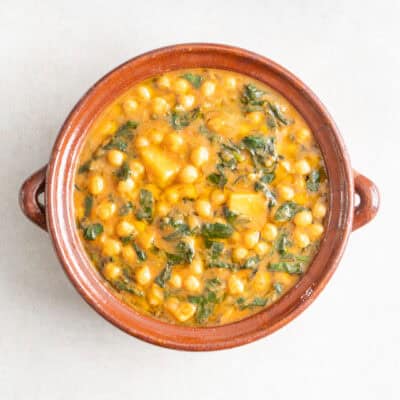
Potaje de Garbanzos (Spanish Chickpea, Potato & Spinach Stew)
Equipment
- Pressure Cooker (I recommend Fissler Vitavit Premium 3.5l or larger), optional
Ingredients
- 320 g dried chickpeas (or 2 x 570g jars or 3 x 400g cans, see note below)
- 2 1/2 tbsp salt (35g)
- 2 large onions (400g)
- 10 garlic cloves
- 1 red pepper
- 1 bay leaf
- 6 tbsp extra virgin olive oil
- 1 large slice of bread (60g, I used sourdough)
- 2 medium potatoes (250g)
- 2 large tomatoes (300g)
- 300 g large leaf spinach
- 1 1/2 tsp pimentón de la vera dulce (sweet smoked paprika)
- 1/2 tsp freshly ground black pepper
Instructions
- Soak the chickpeas with 1 tablespoon of the salt (14g) in at least 1.5l of water overnight. If using a pressure cooker, you can skip the salt.
- The next day, peel and half one of the onions, peel four of the garlic cloves and deseed the red pepper. Drain the chickpeas and add them to a large saucepan along with 2l of water as well as the halved onion, four garlic cloves, red pepper and bay leaf. Bring to a boil, then simmer with a lid left ajar (or covered if the pan is large enough) for 1 hour or until the chickpeas are just tender. Then simply turn off the heat and leave to cool. Alternatively, cook with 1l of water for around 15 minutes in a pressure cooker (saves 1 hour and 15 minutes of the total time).
- When the chickpeas have around 10 mins left, heat 3 tablespoons of the olive oil over medium heat in a large casserole. Peel the remaining garlic cloves and sauté them whole until golden (3-4 minutes), then transfer to the jug of a large blender. Now toast the bread in the residue oil until golden on both sides (3-4 minutes), chop it into chunks and add to the blender jug as well.
- Discard the bay leaf from the chickpeas and transfer the cooked onion, garlic and pepper to the same jug from above. Add 300ml of water and blend into a thick paste. Drain the chickpeas, but keep the cooking water for later.
- Heat the remaining 3 tablespoons of oil over medium heat in the casserole. Peel and roughly chop the onion and sauté in the oil until it begins to turn golden (8-10 minutes). Meanwhile, cut the potatoes into bite-sized chunks, roughly chop the spinach, grate the tomatoes and discard the skins (or eat as a snack with olive oil and salt), setting everything aside in separate bowls.
- Add the grated tomatoes to the casserole with the onions and cook until the juices have evaporated. Stir in the paprika and pepper and, once aromatic, pour in the drained chickpeas, 400ml of the reserved cooking liquid, the blended paste, potatoes and remaining 1 1/2 tablespoons of salt (21g). Return to a boil, then reduce the heat and simmer covered for 15 minutes, stirring halfway through to avoid it sticking to the bottom.
- Fold in the spinach and cook for another 5 minutes or until the potatoes are tender. Divide over bowls and serve with a drizzle of extra-virgin olive oil.

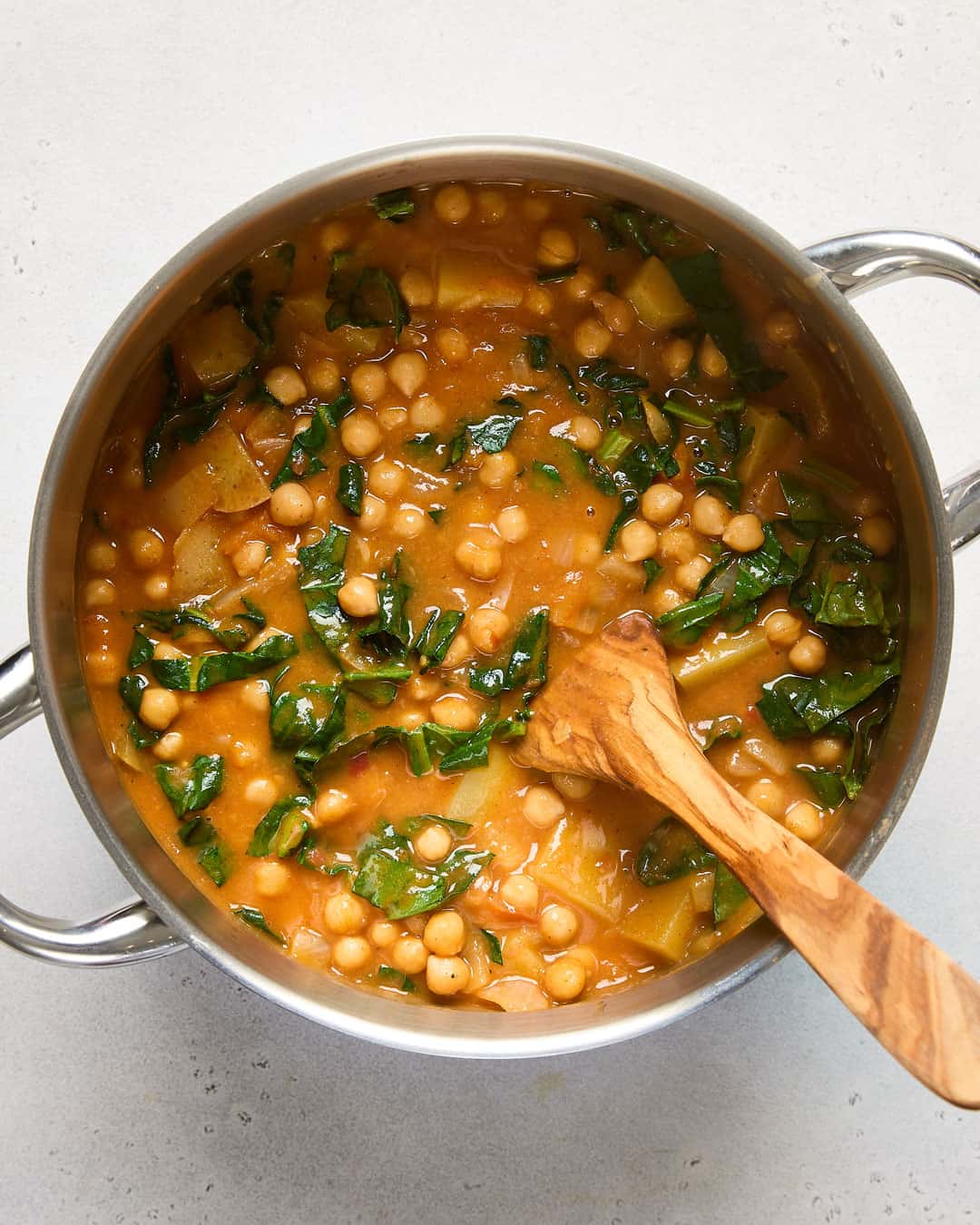
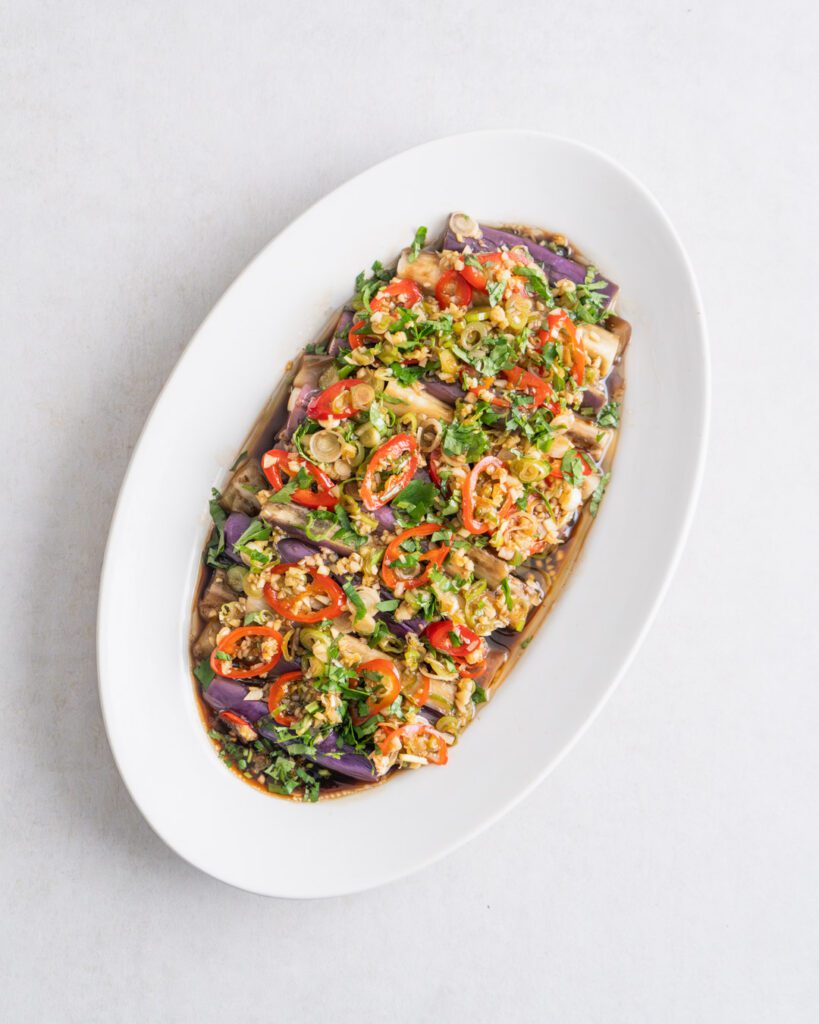
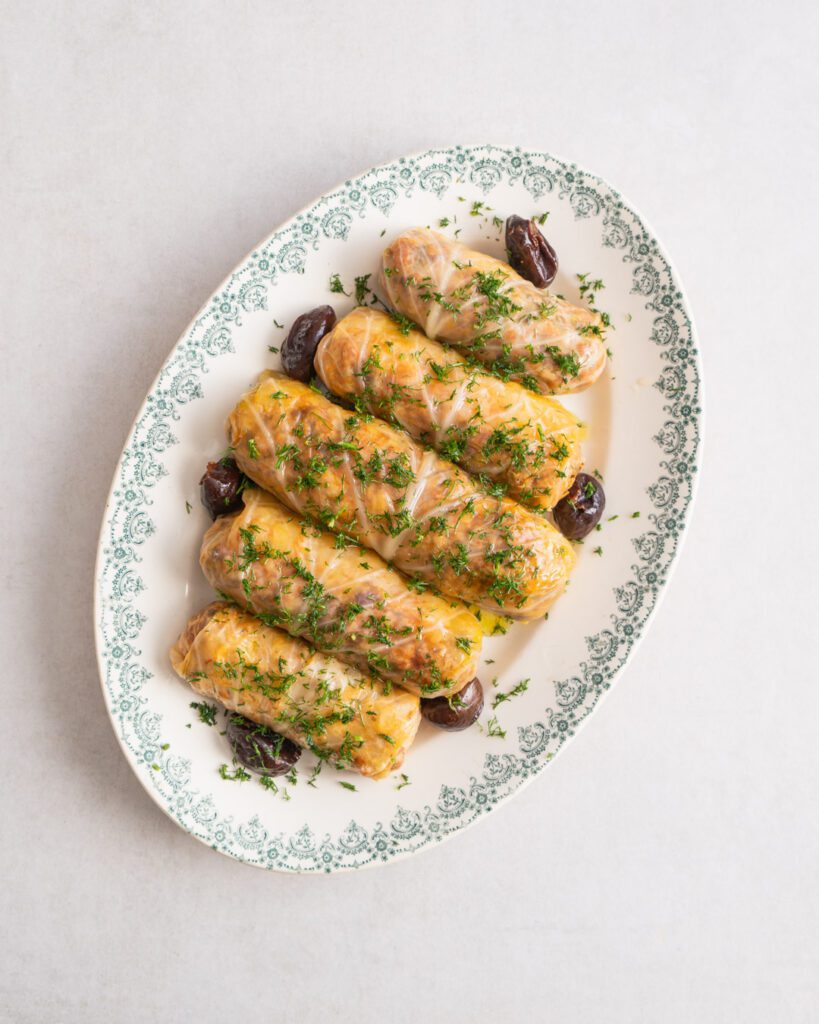
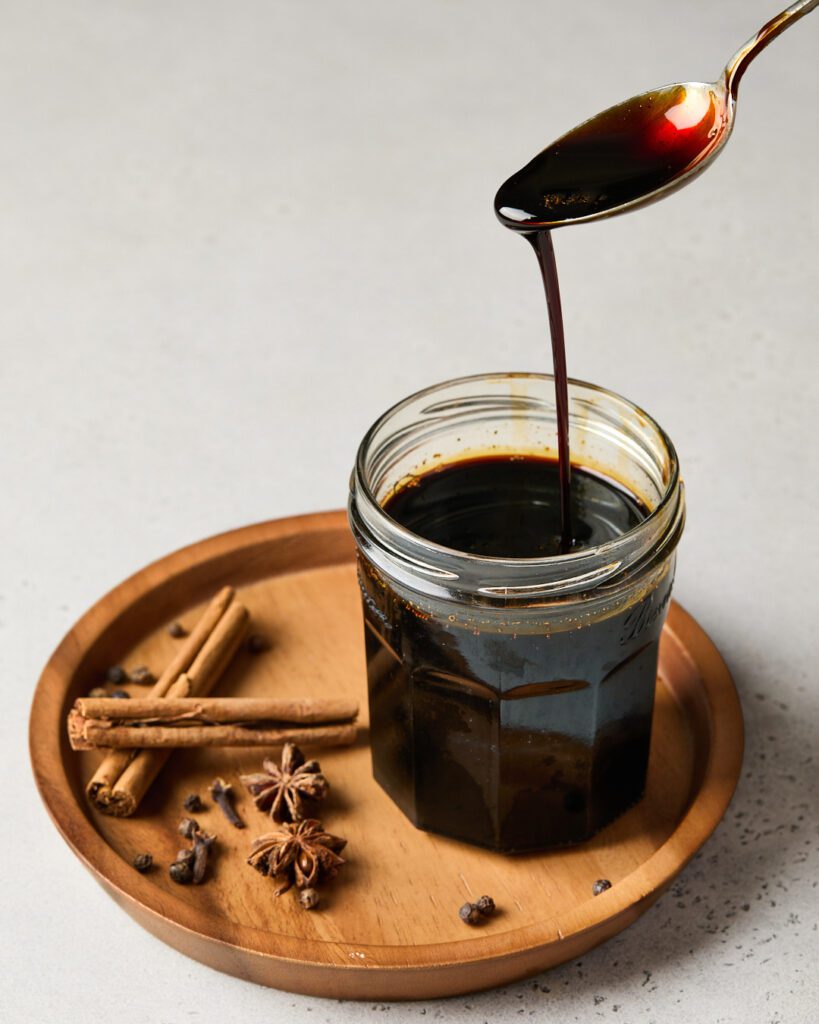
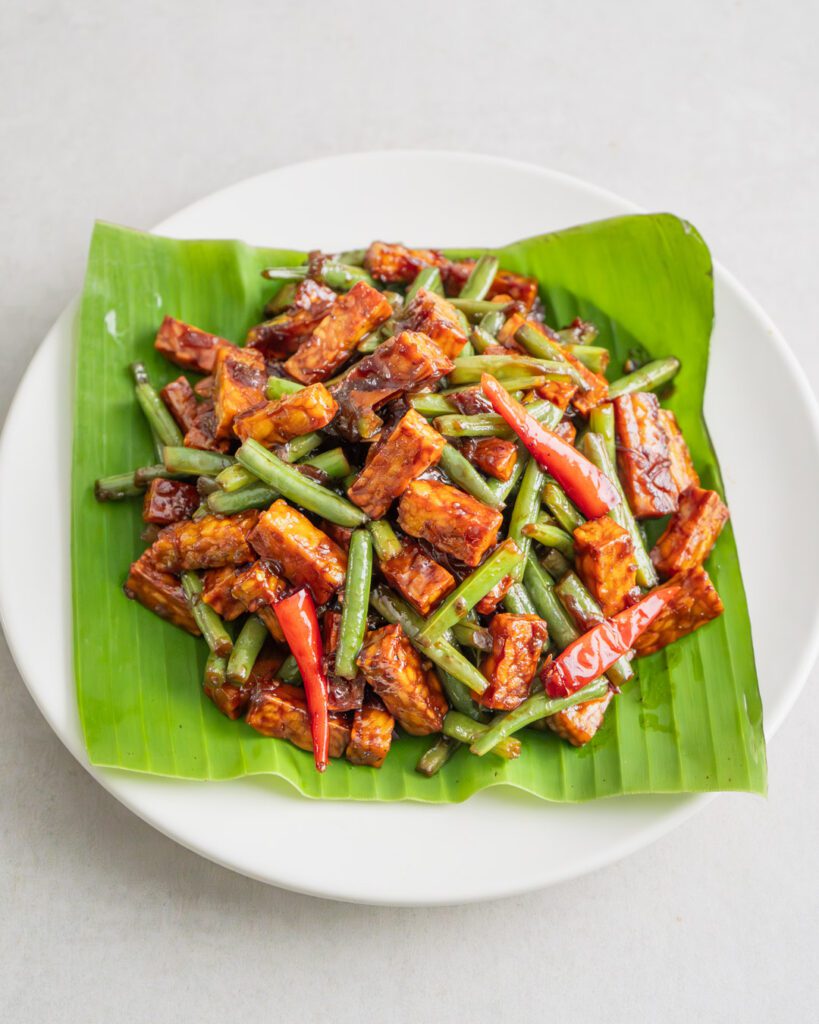
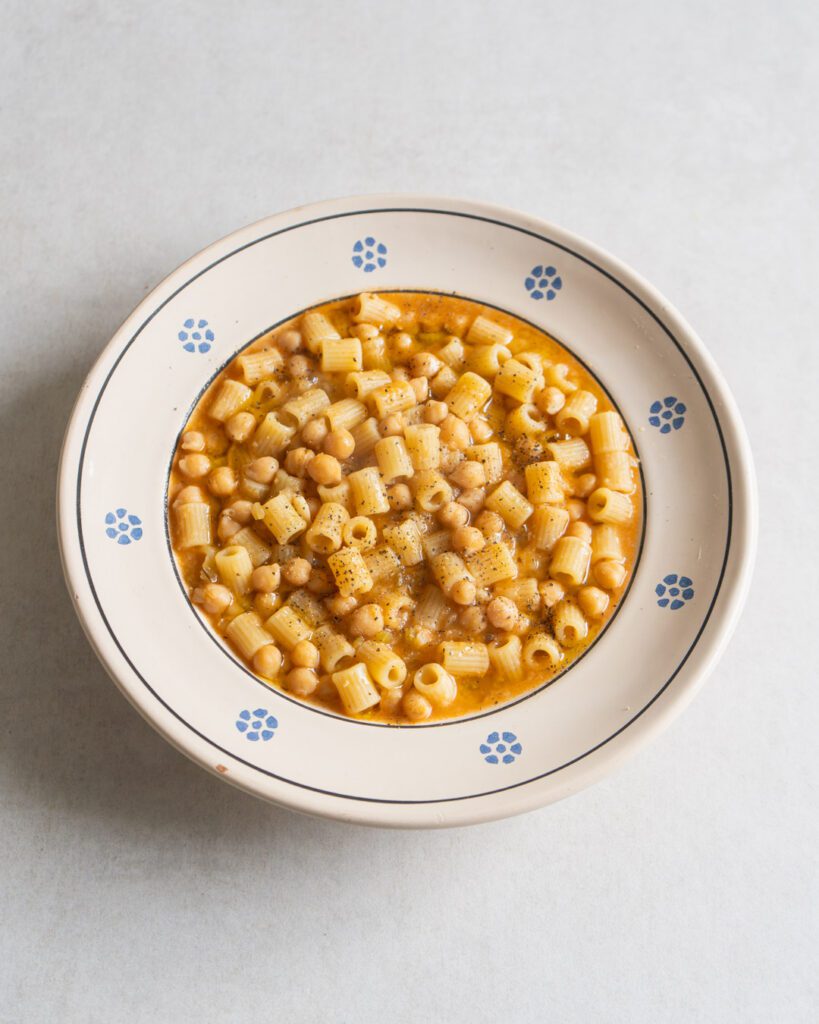
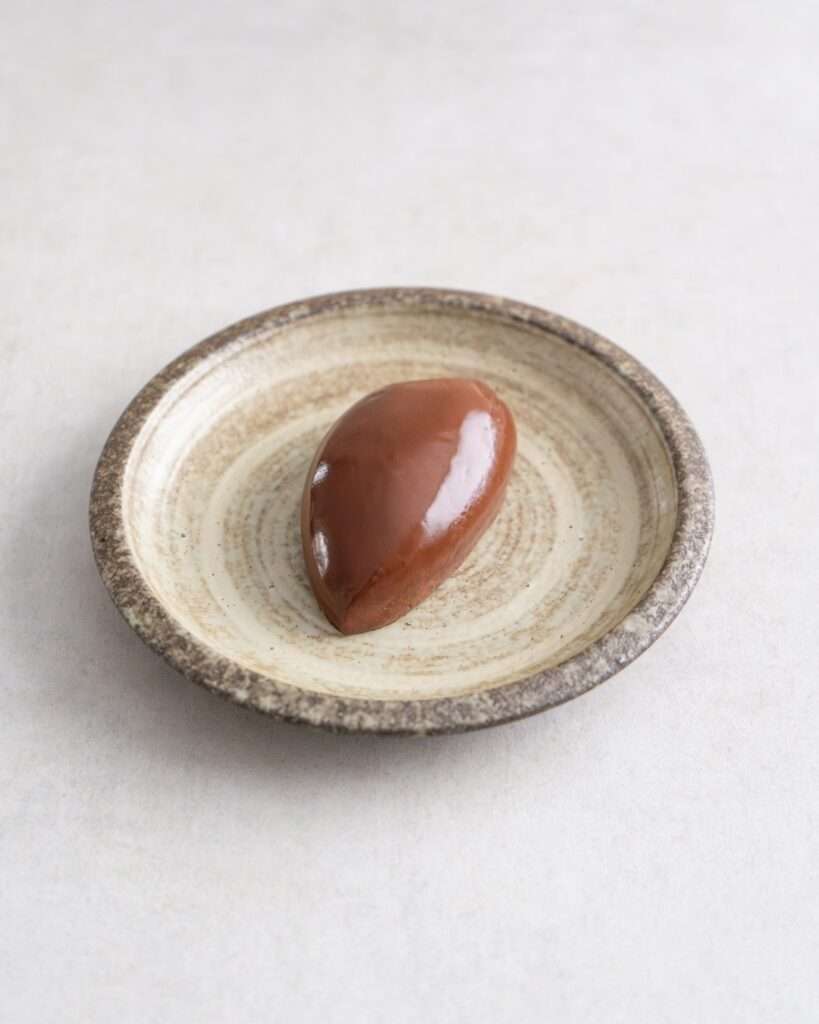
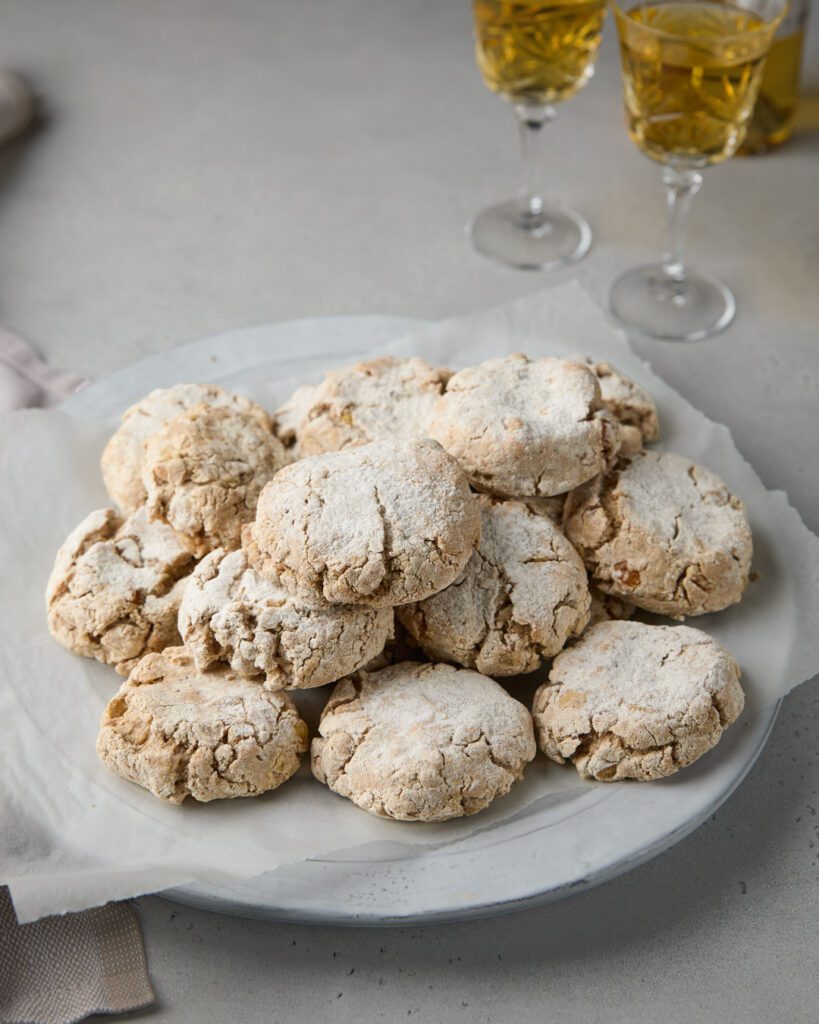
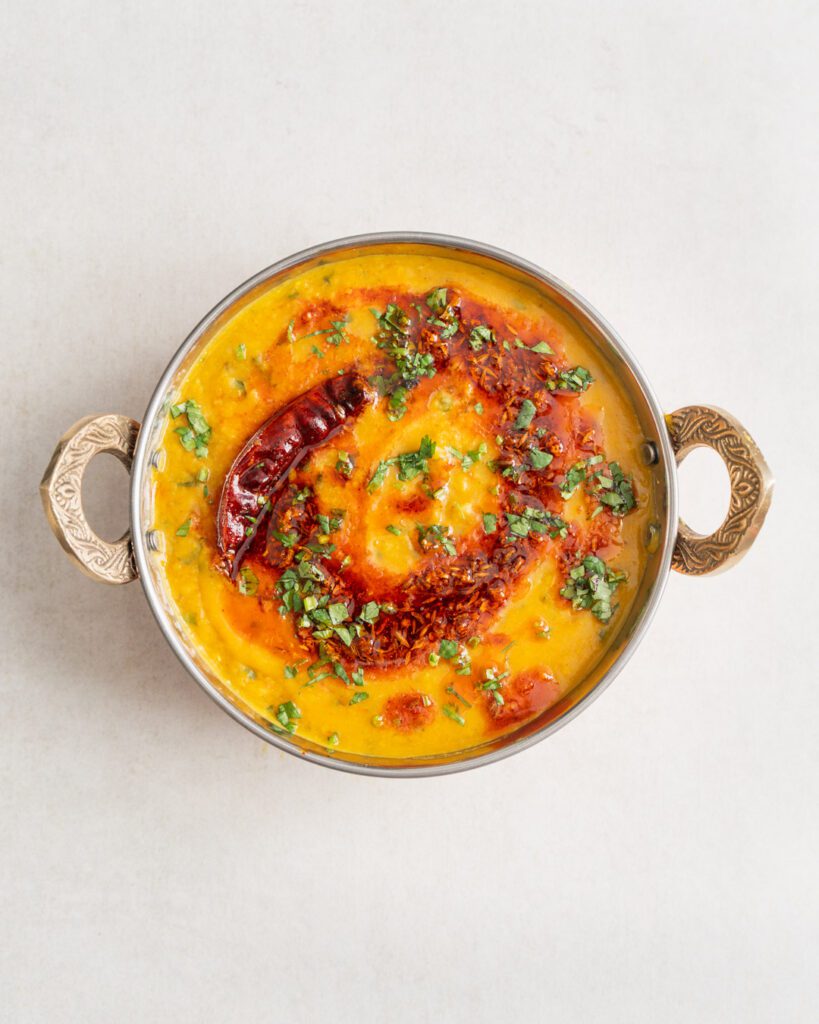
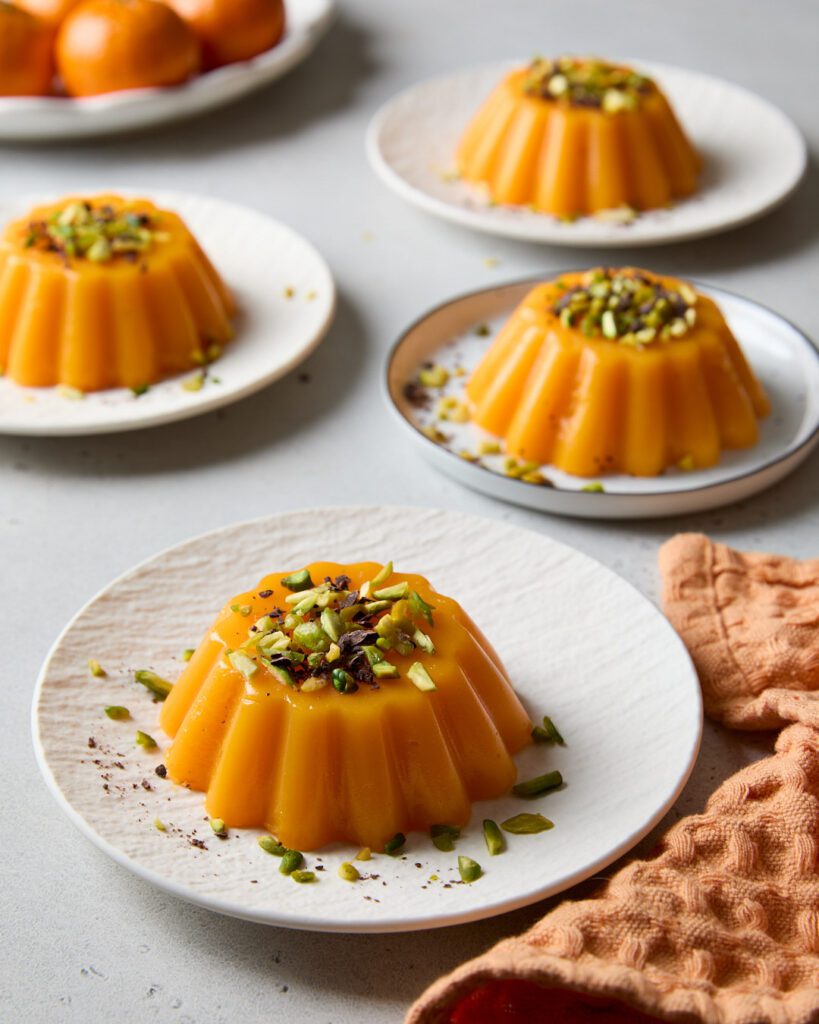
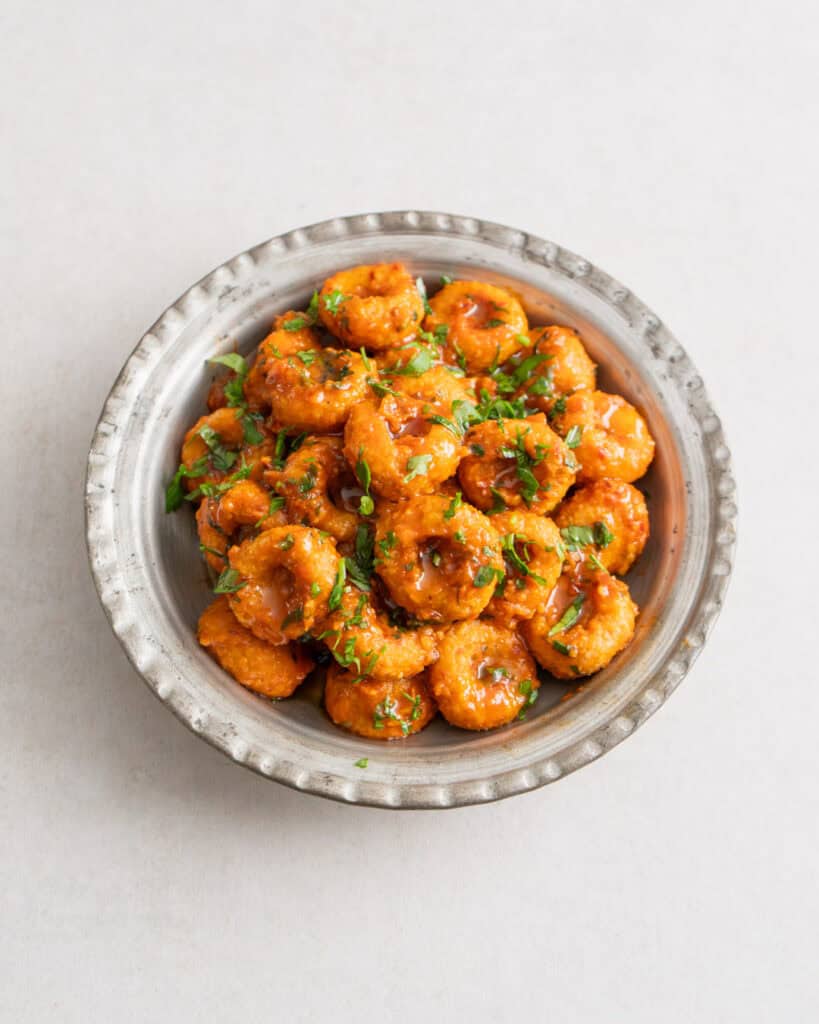
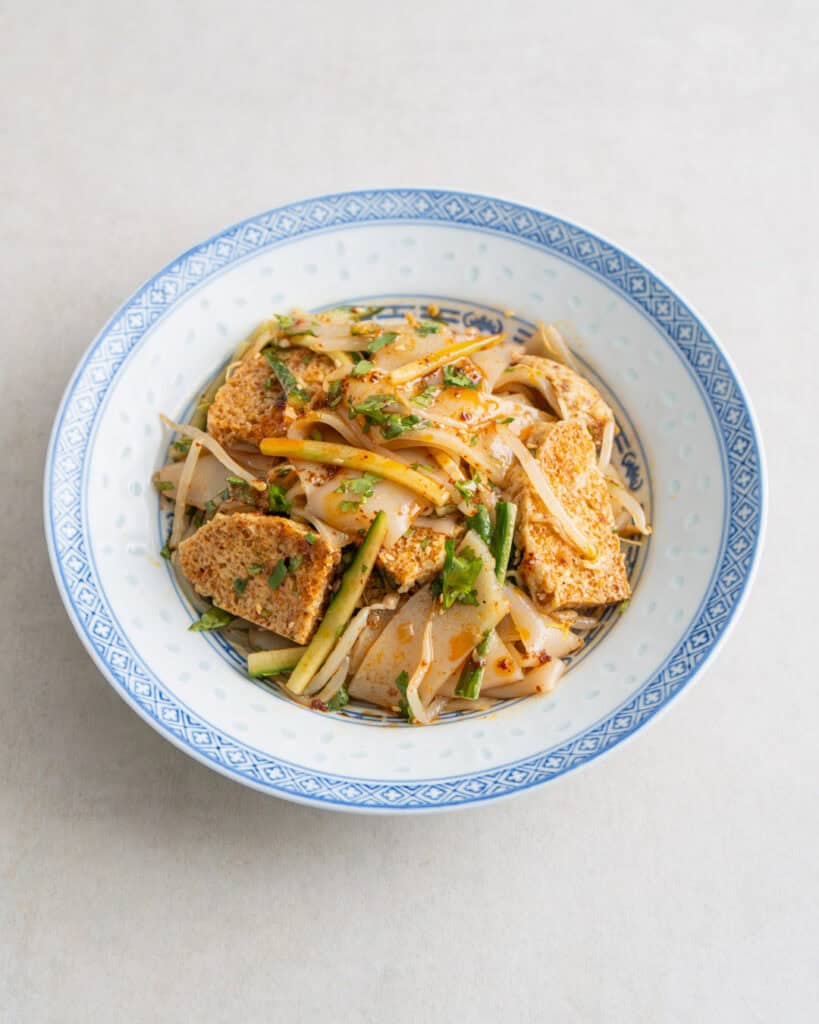
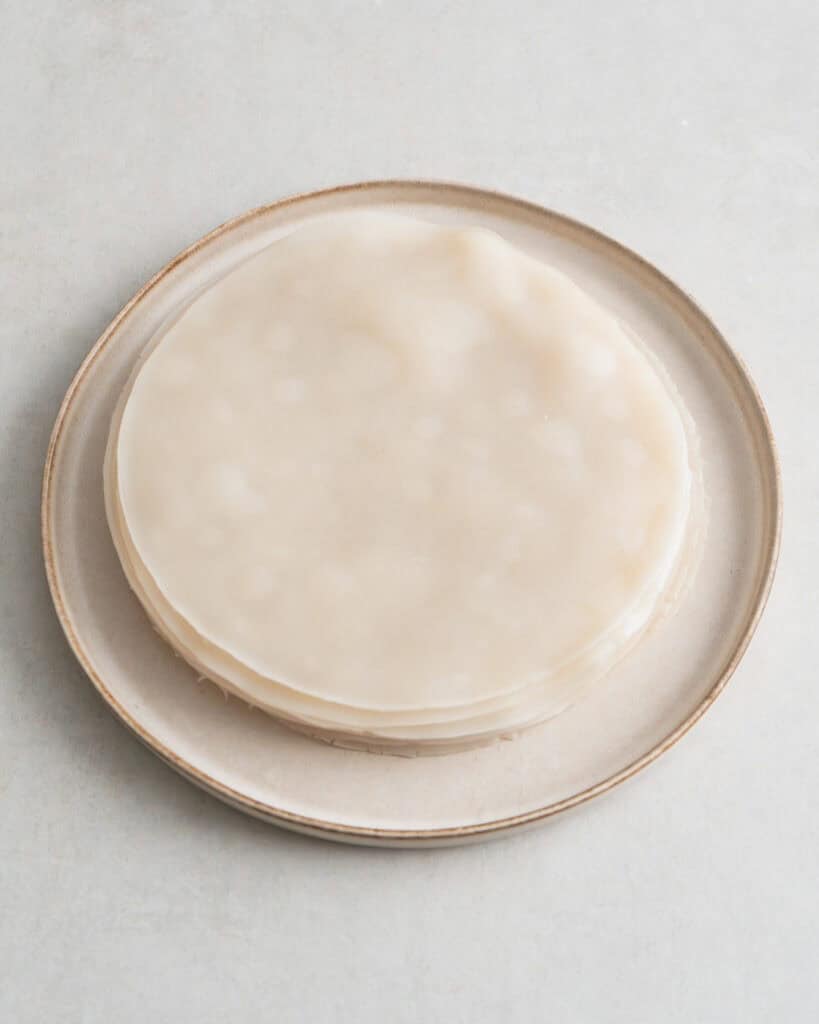
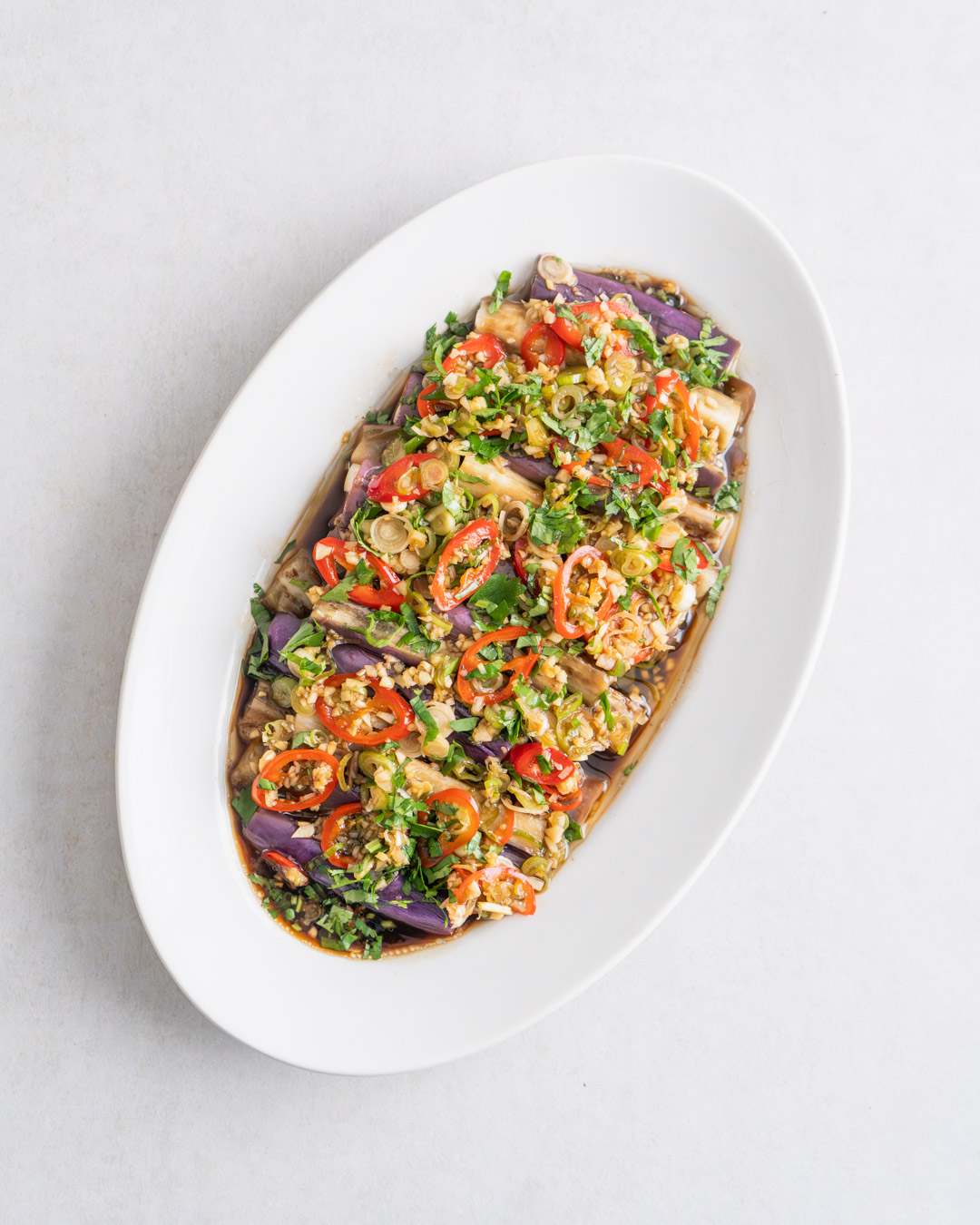
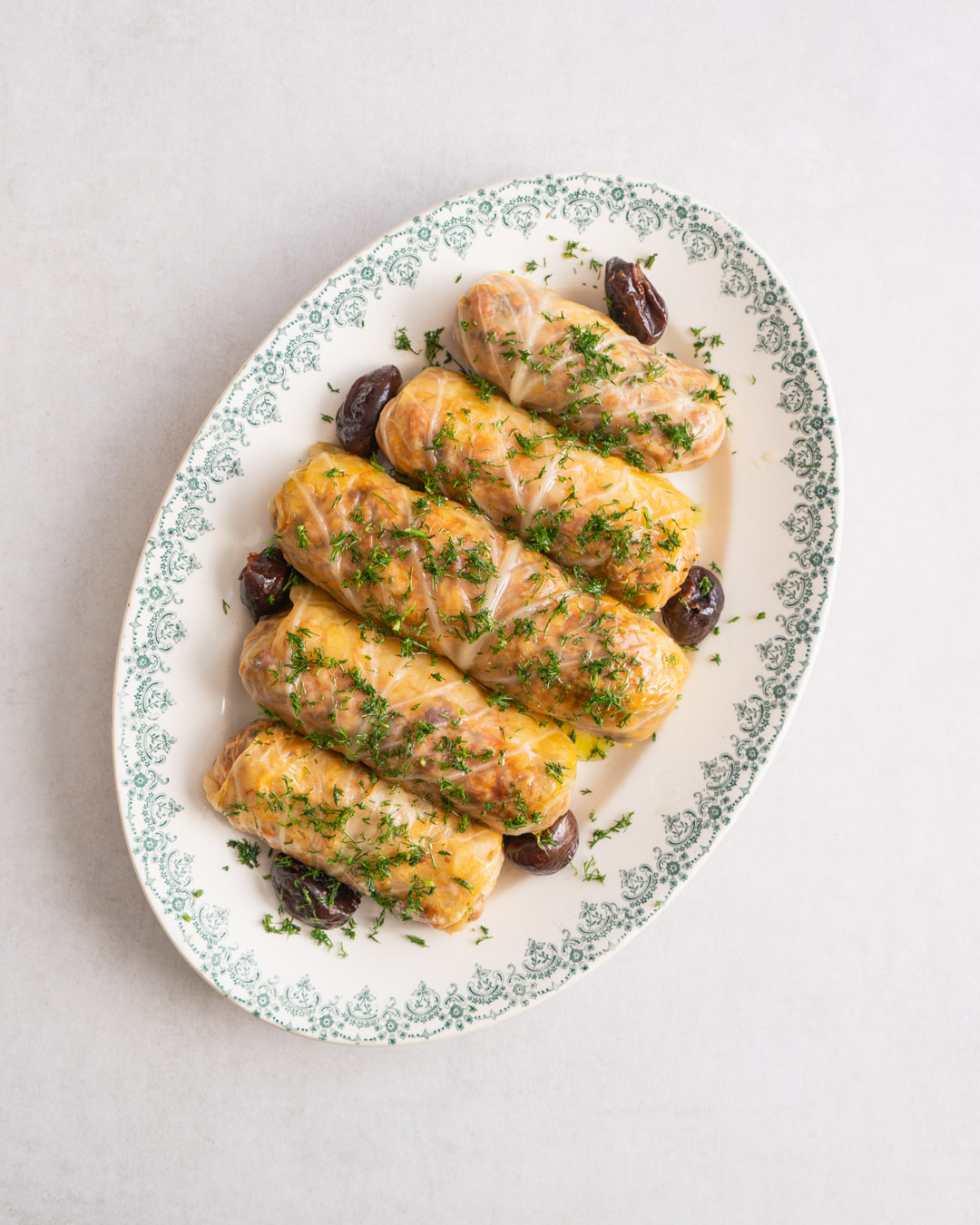
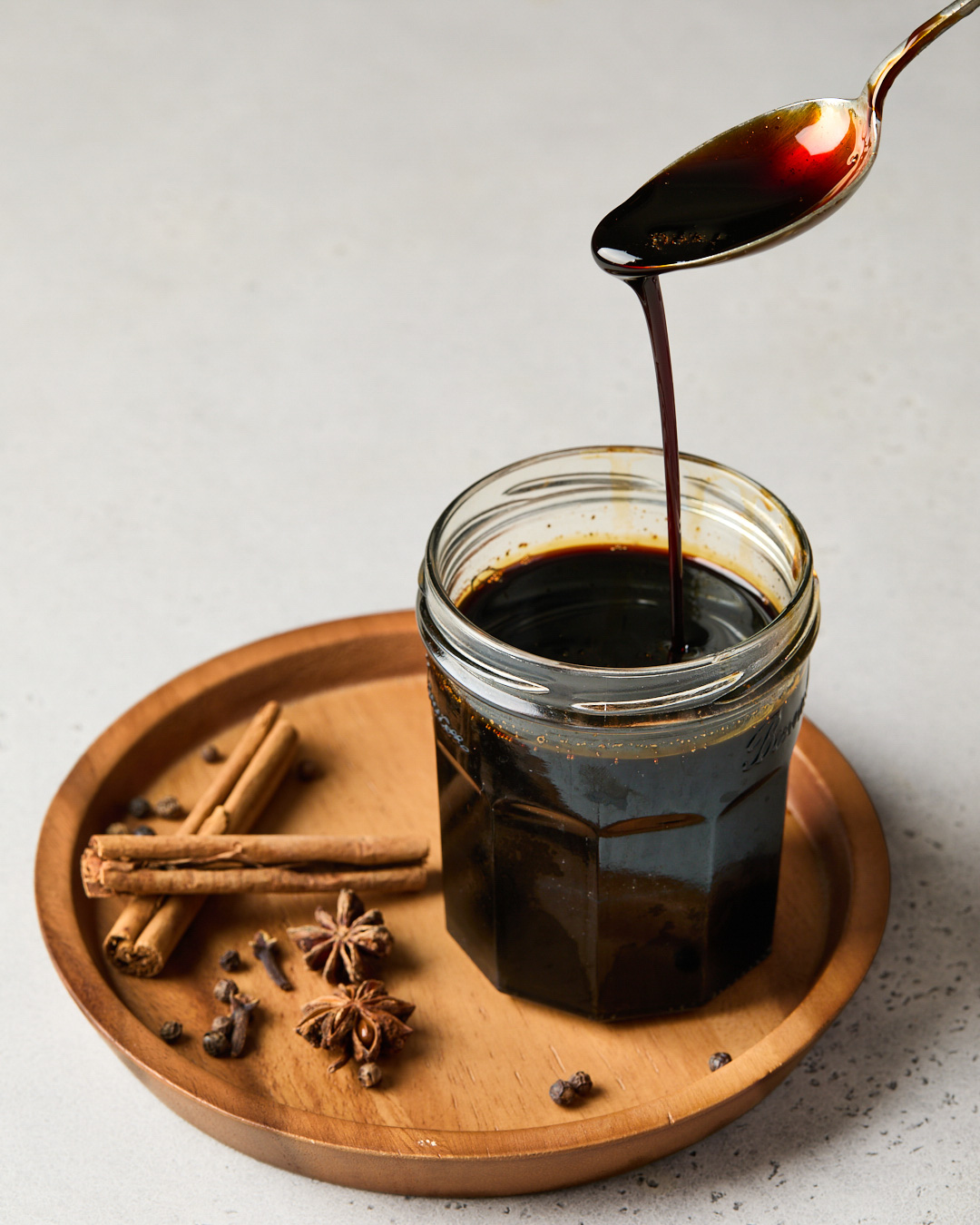
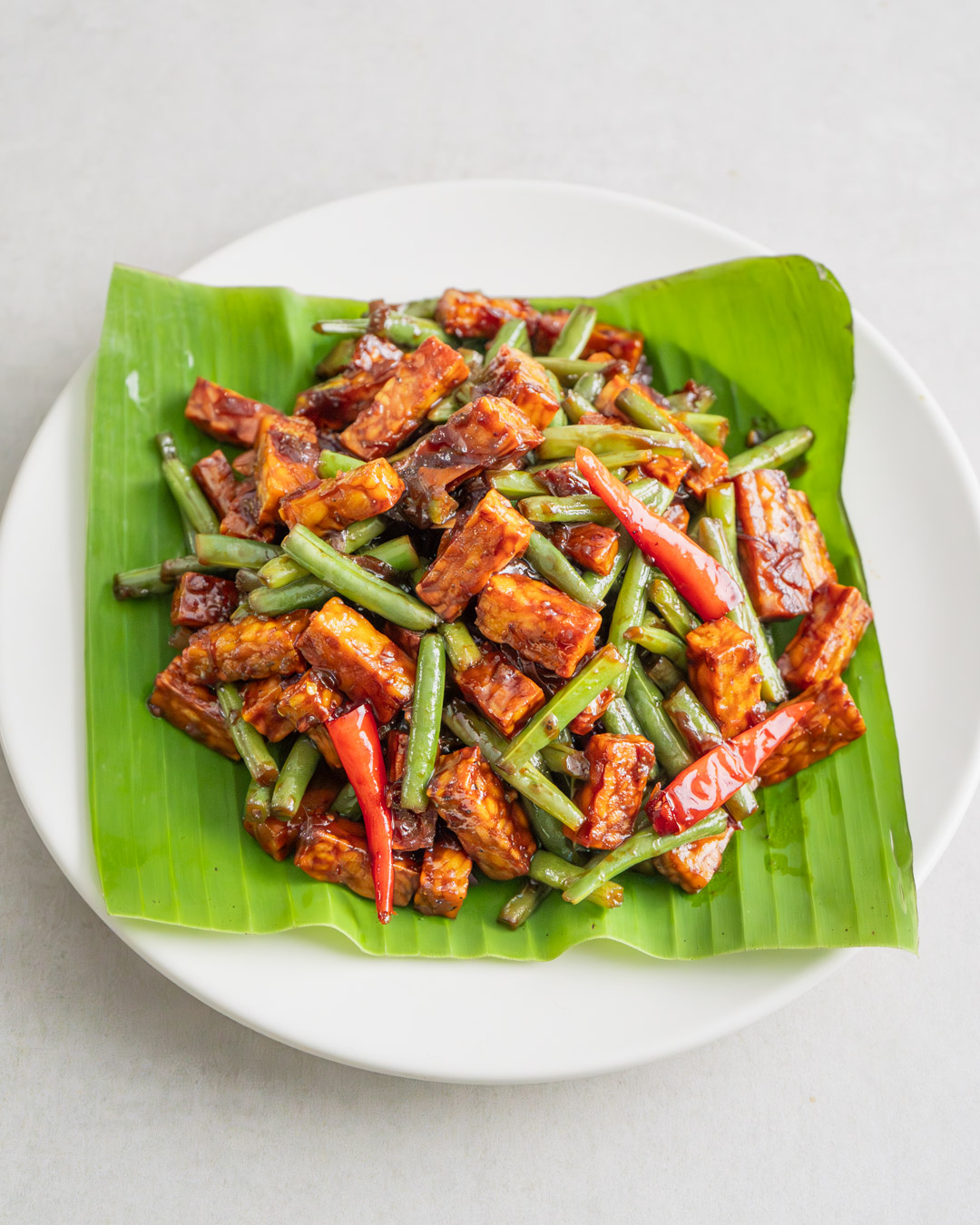
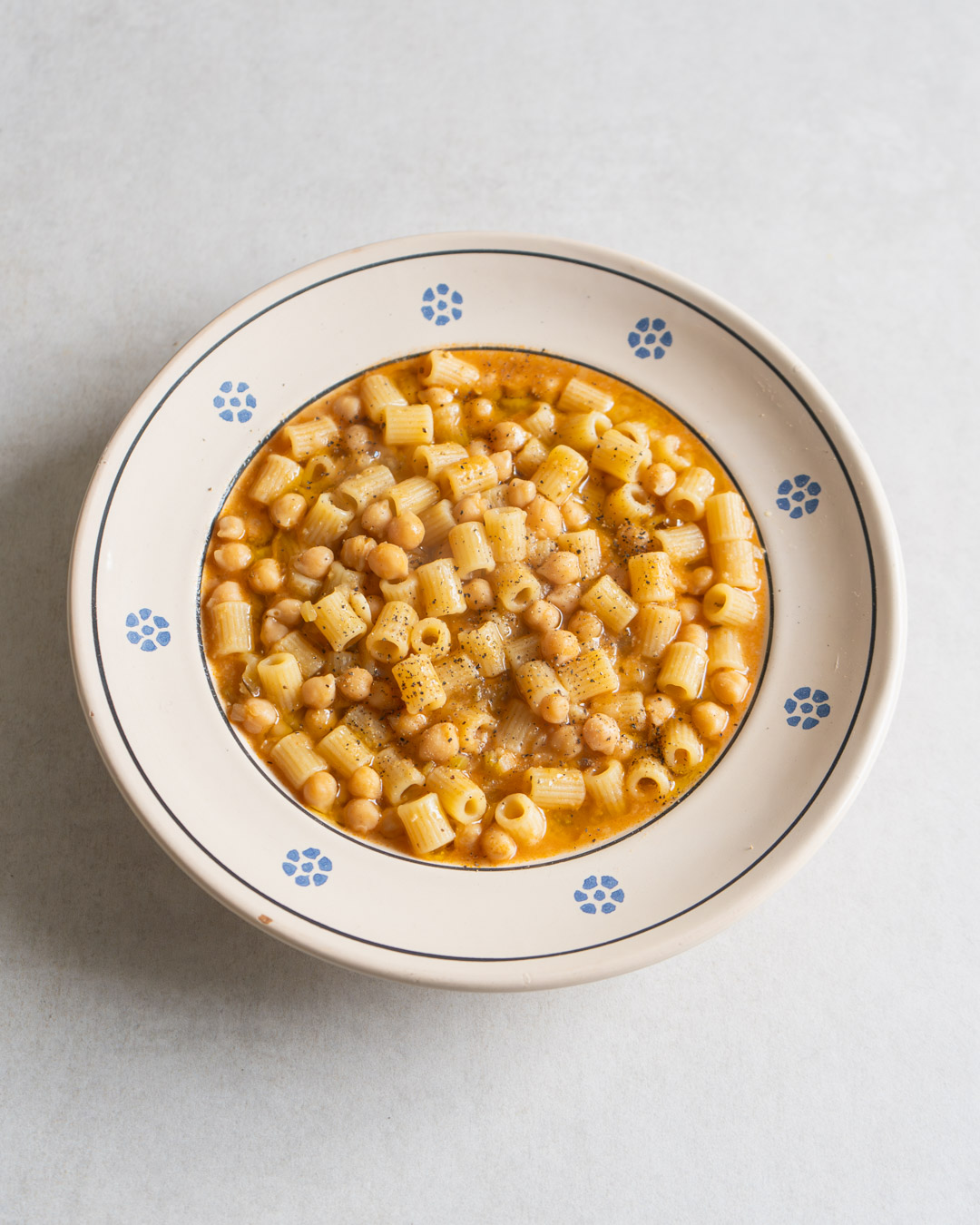
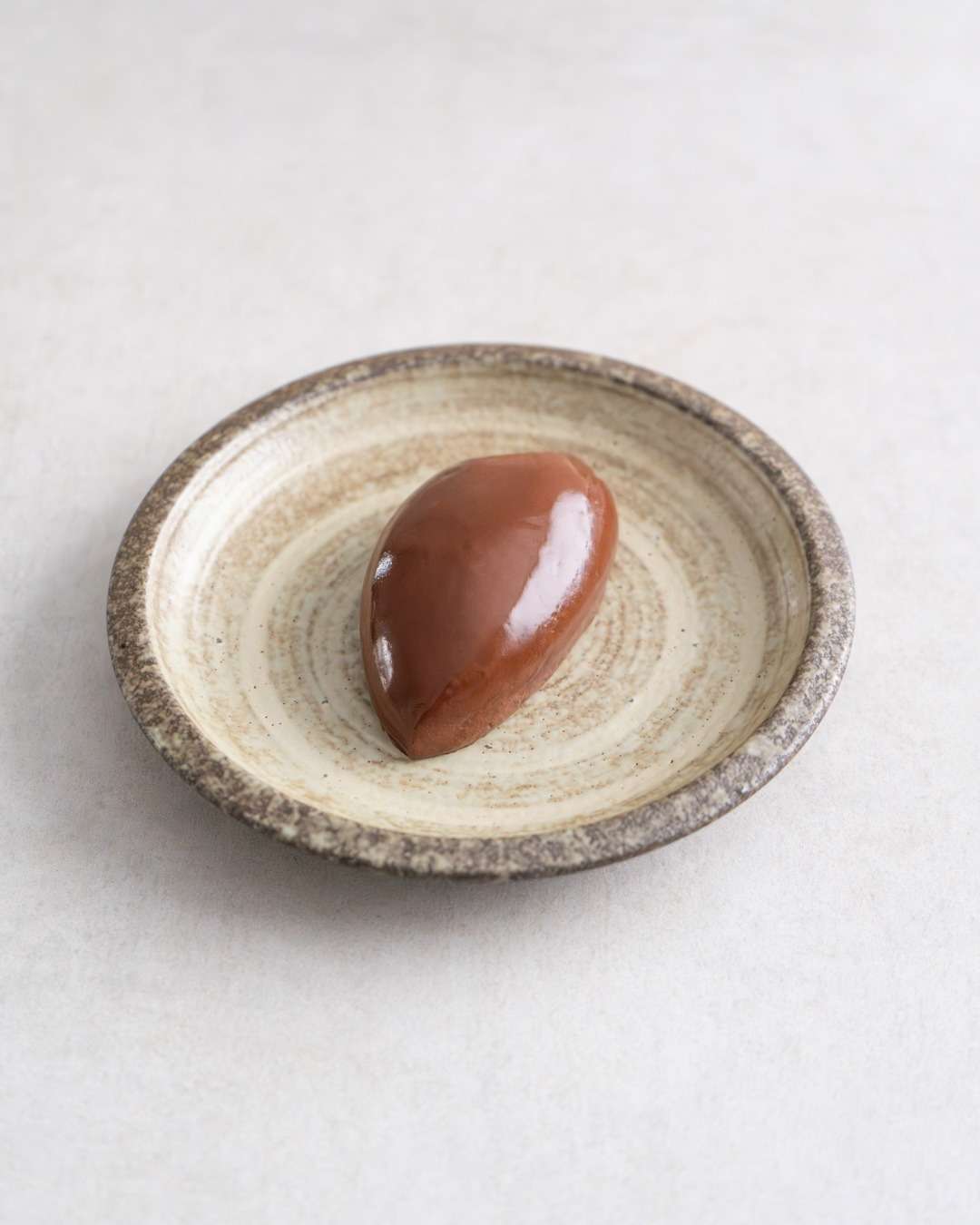
Great flavours, super comforting with a slice of sourdough on the side. Next time I will parboil the potatoes before adding them, and add a dash of sugar to offset the acidity of the tomatoes. Apart from that, a keeper. Will definitely make again, thanks 😊
Wonderful! Thanks for the feedback as well ☺️
Hello, is regular smoked paprika different from the one you recommend here?
You can use regular smoked paprika. ☺️ In Spain it’s just called pimentón de la vera dulce.
Delicious, fantastic thick and tasty stew. I don’t have a blender but it still turned out yummy 🙏💚
Wonderful! The blender is only a little hack to speed things up. Traditionally, a pestle & mortar would be used. But whichever method you choose, it’s just a way to break down the bread and thicken the stew naturally. Glad you liked it!
One of my favourite recipes that I make almost weekly now! So rich in flavour and comforting. Thank you so much for sharing. 🙂
One of my favourite recipes that I make almost weekly now! So rich in flavour and comforting. Thank you so much for sharing. 🙂
That’s wonderful to hear! Absolutely, it’s the ultimate comfort food!
I want to make this recipe, but I’m finding the note on how to make this using canned chickpeas extremely confusing. 🙁
Sorry about that! Usually the red pepper and onion are cooked together with the chickpeas. If using canned chickpeas, I recommend cooking the pepper and onions separately, so you still have that scrumptious flavour in the liquid. The other step is just about adding fresh water instead of the cooking water. Let me know if anything is unclear.
Rich and flavorful. My coworkers and I tried making it together for a soup day. Even their kids wanted more.
That’s so cool! Love that this became a thing for soup day. Amazing! And kudos to those kids, they are good eaters!
Guten Tag,
Sehr geehrter Hr. Fiedler,
mit großem Enthusiasmus habe ich Ihr Rezept nachkreiren dürfen und muss mich sowohl vor Ihnen, da sie dieses Rezept mit uns teilen als auch vor dem himmlischen Gericht selbst verbeugen.
Wirklich, wirklich WUNDERBAR!
Hochachtungsvoll,
Siggi Strangfeld Ba-Wü, Germany
P.S. Ihr Buch ist schon vorbestellt. (:
Das freut mich sehr, danke! Und es könnte sein, dass Sie damit der erste sind, der das Buch vorbestellt hat! Es wurde ja noch gar nicht verkündigt 😂